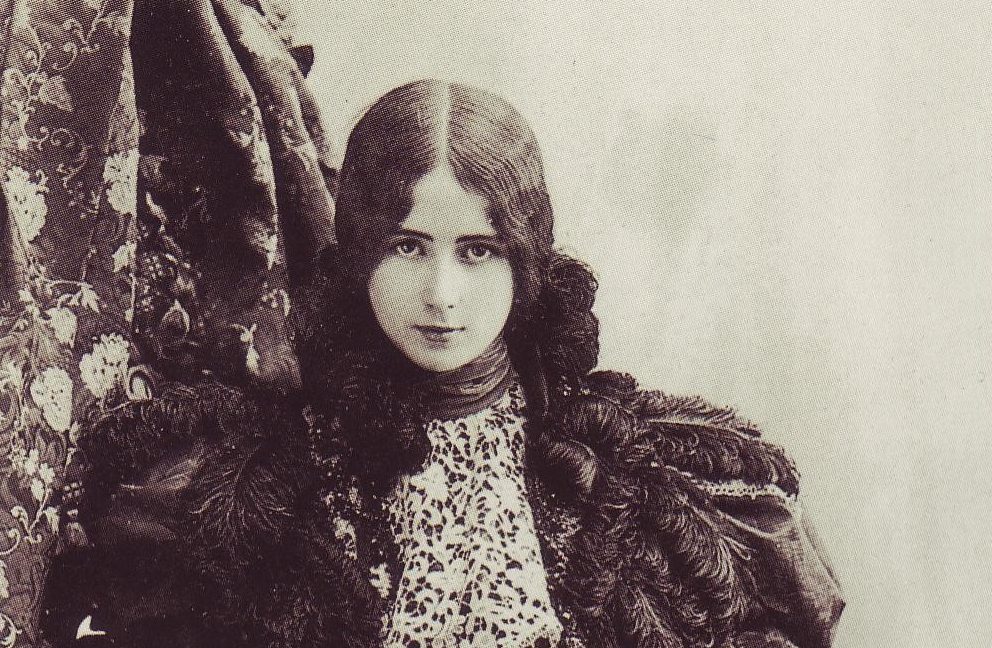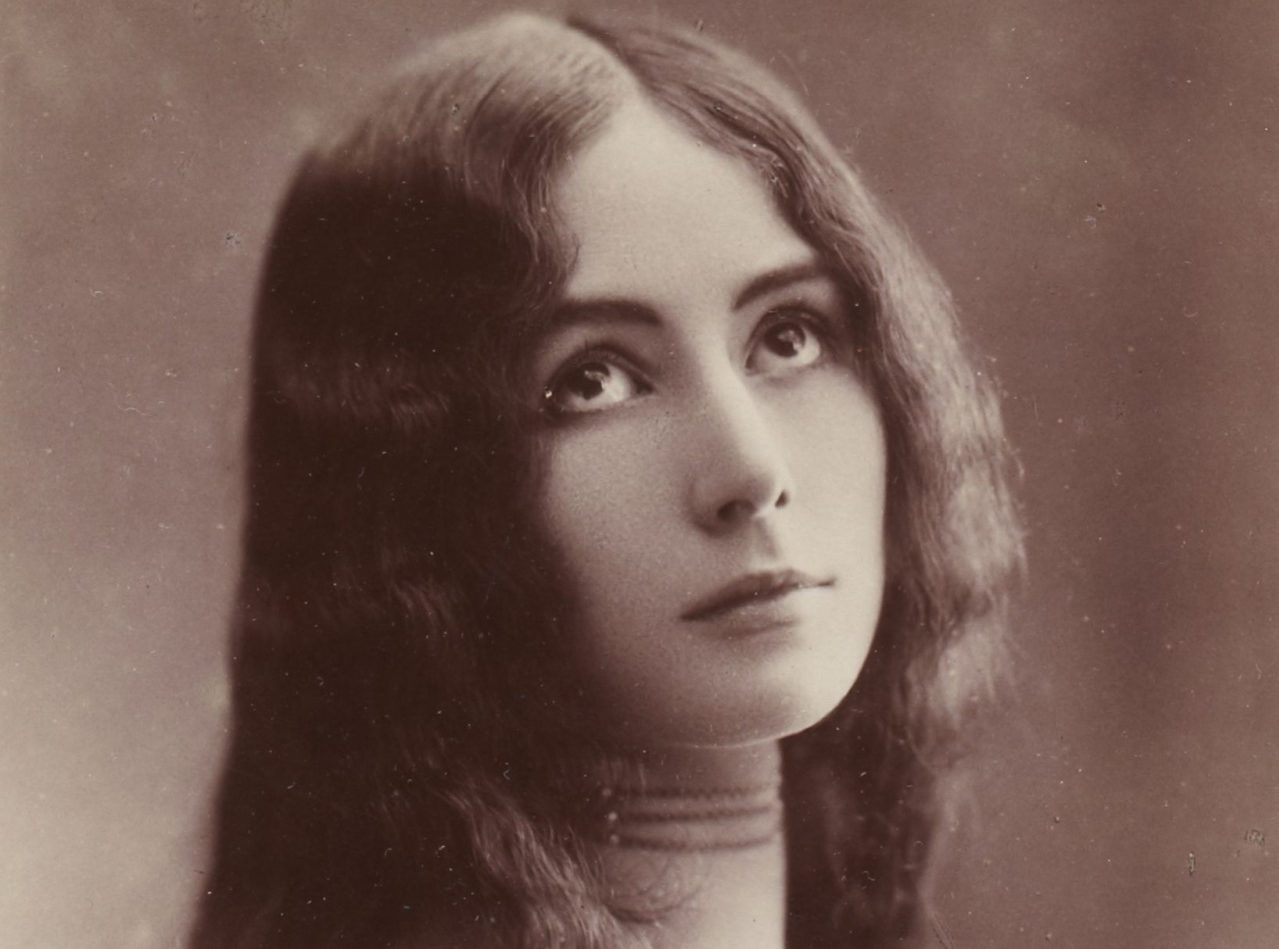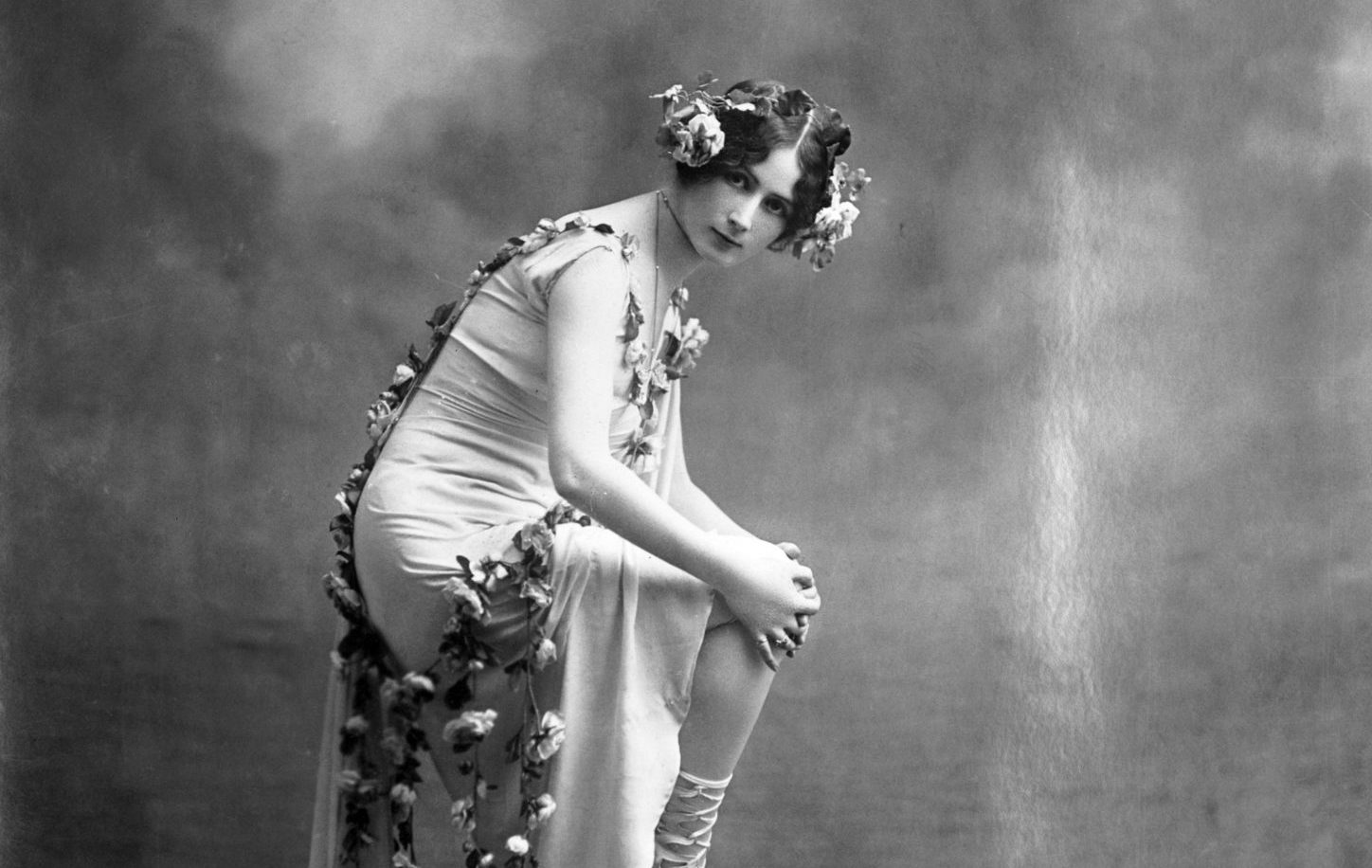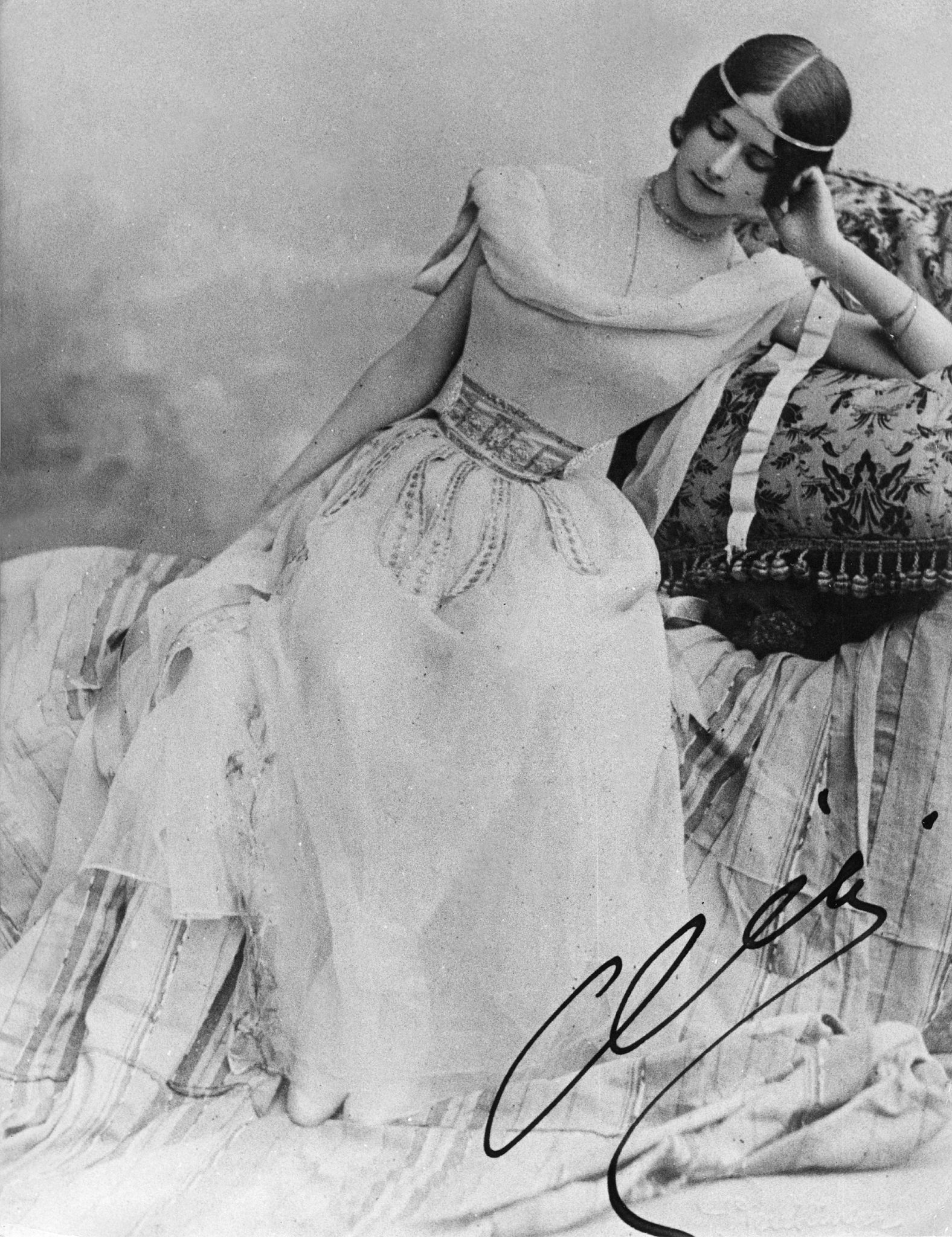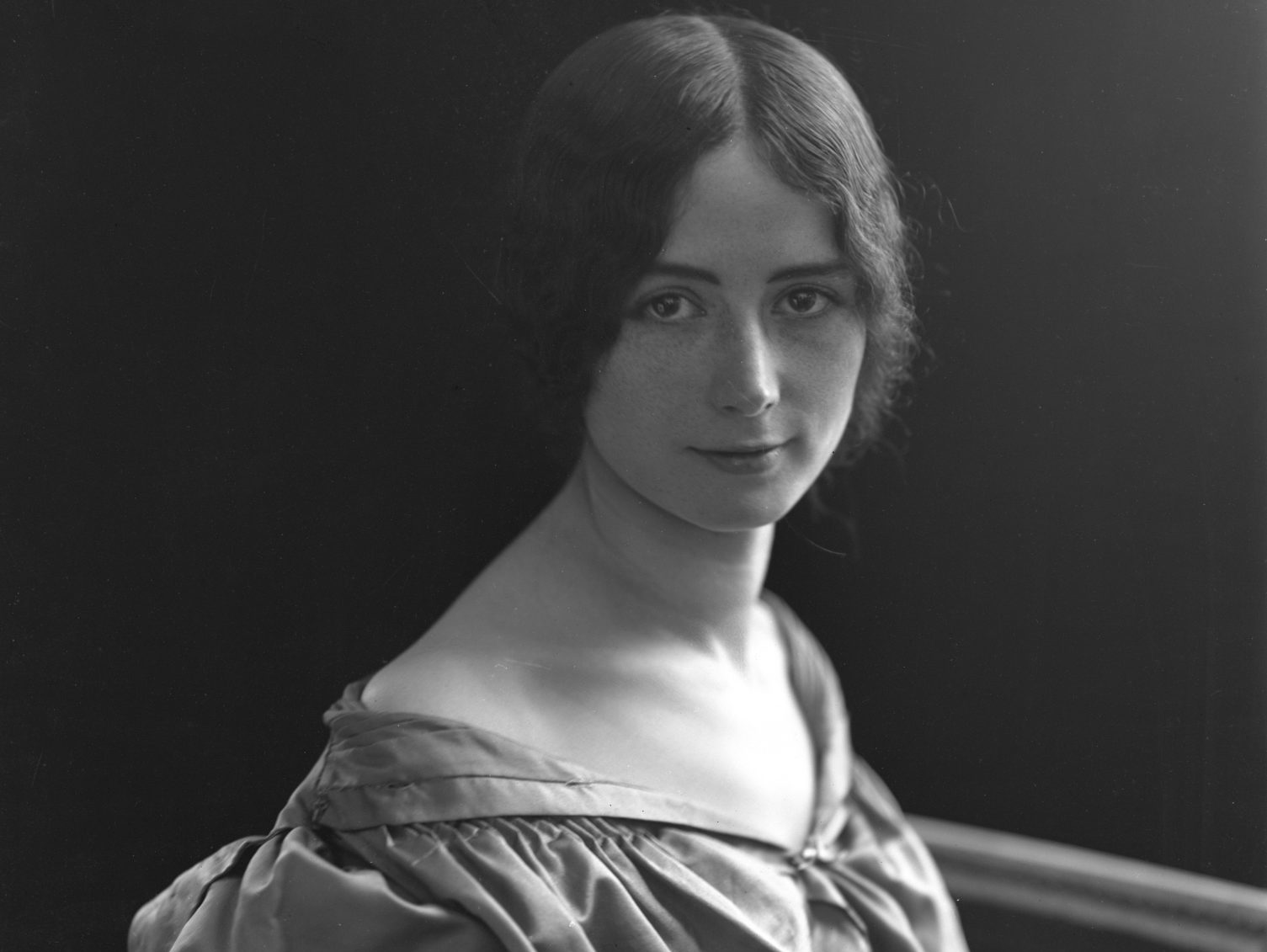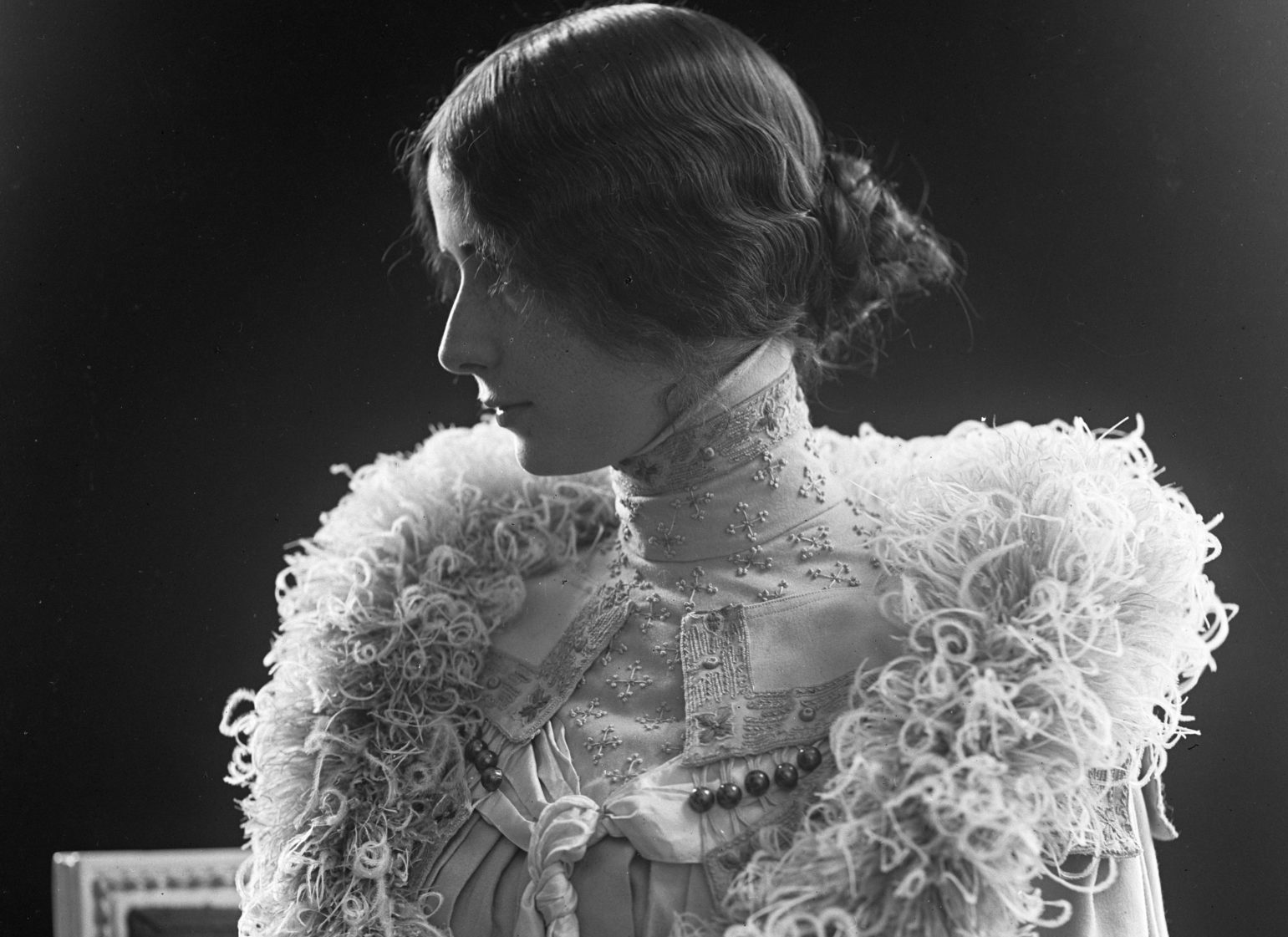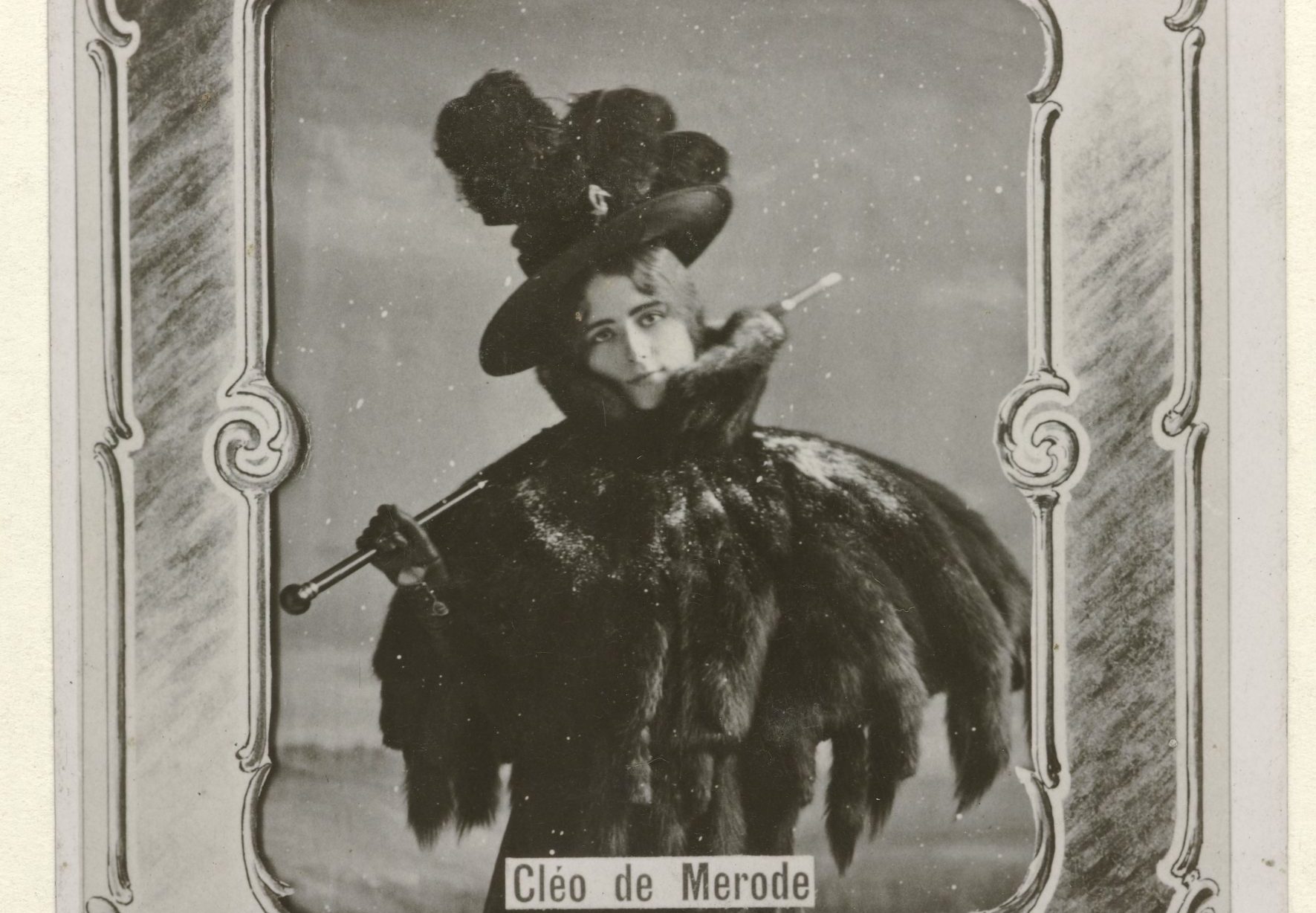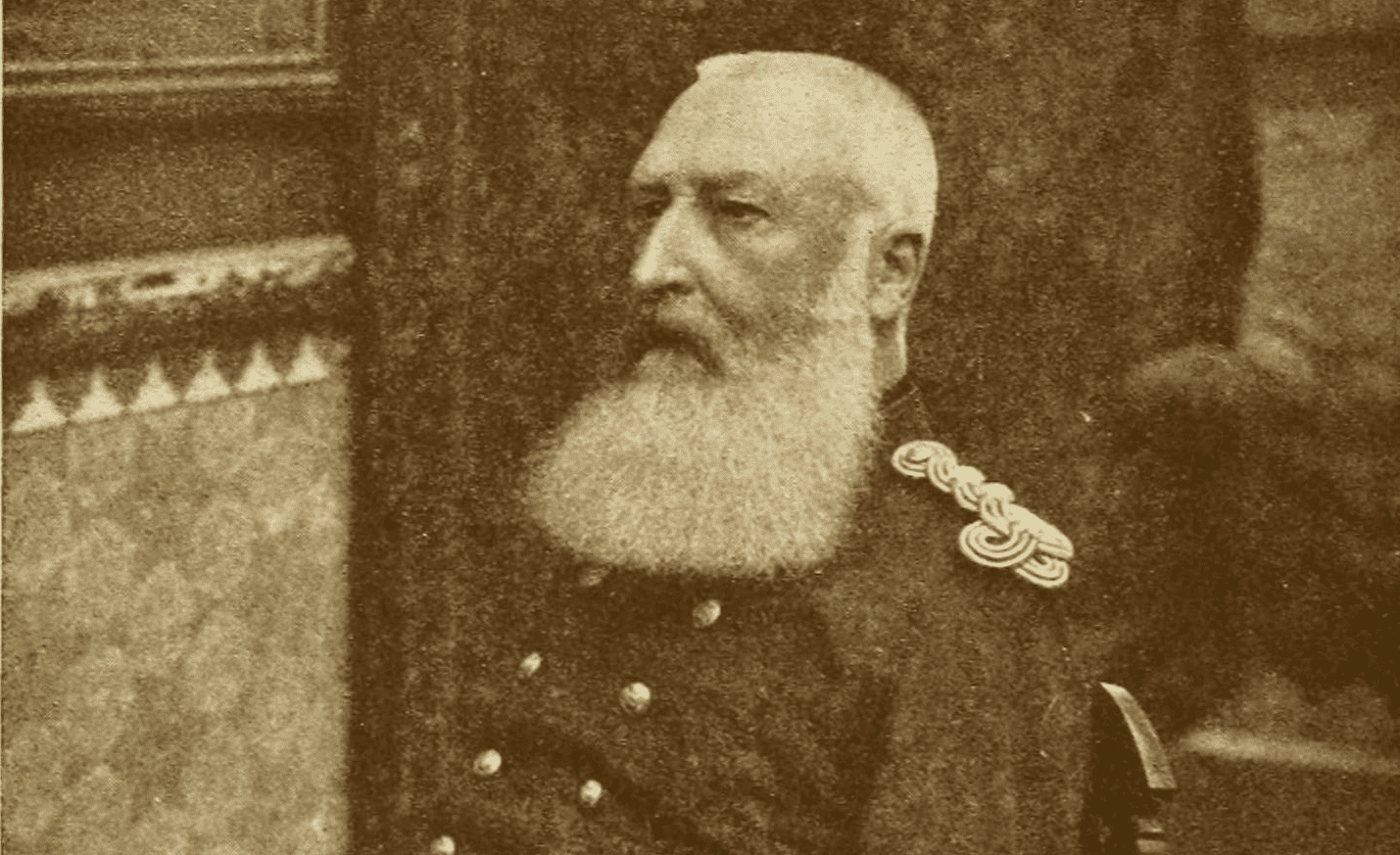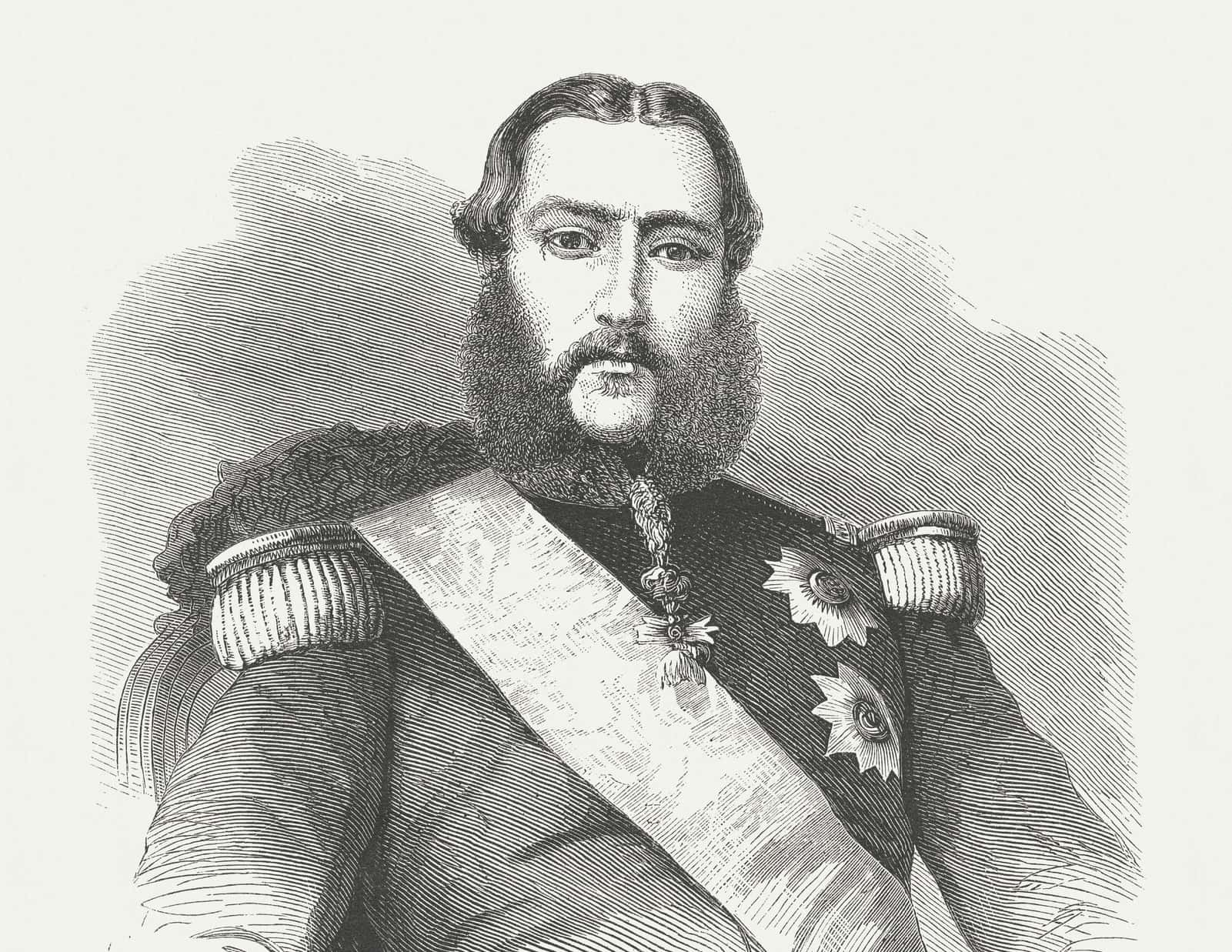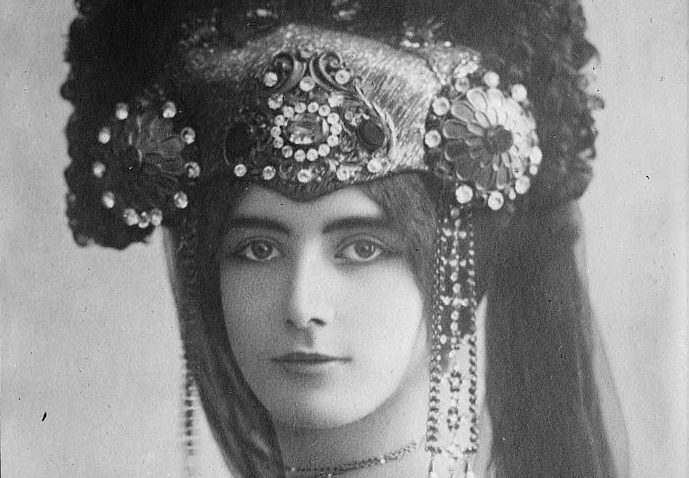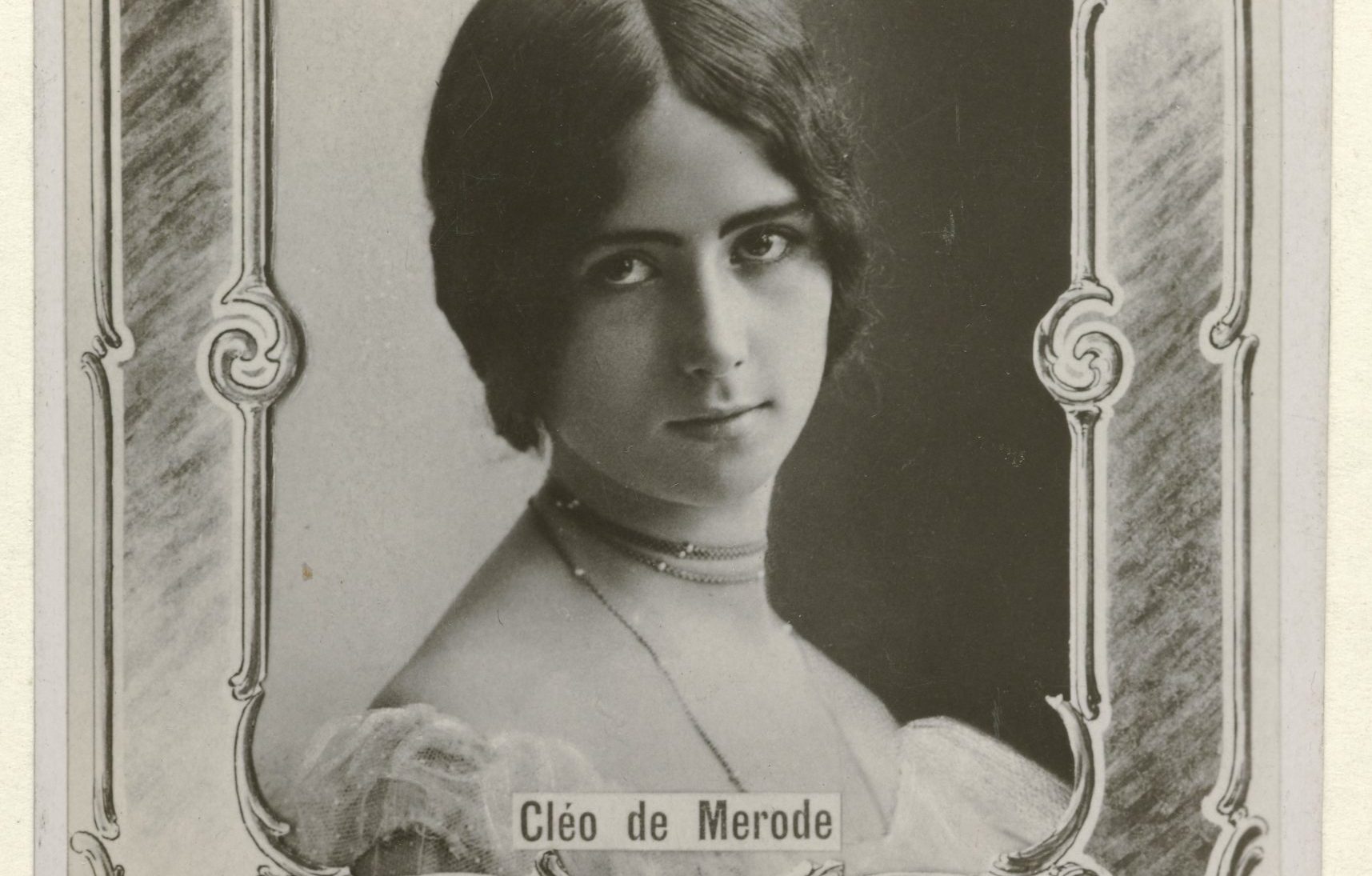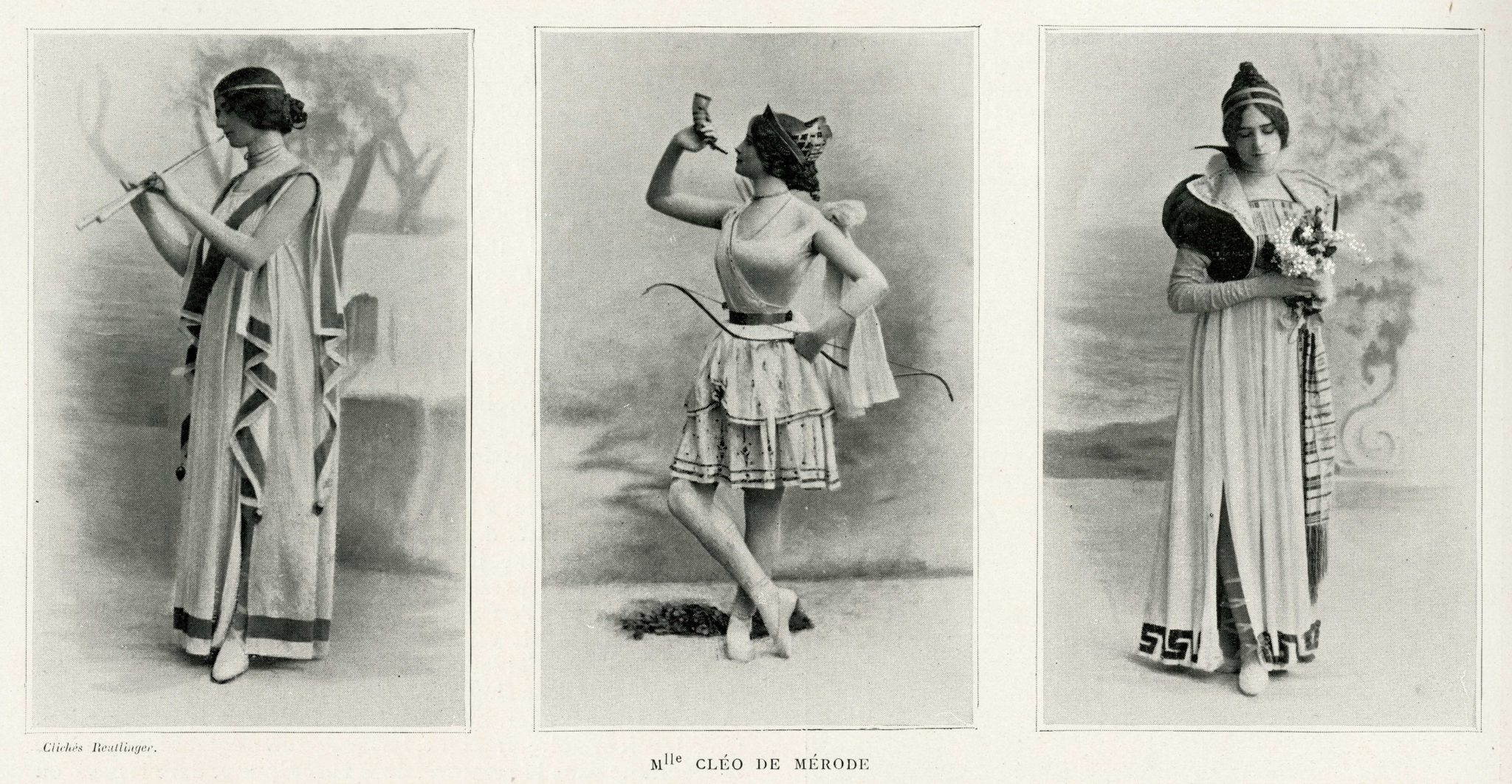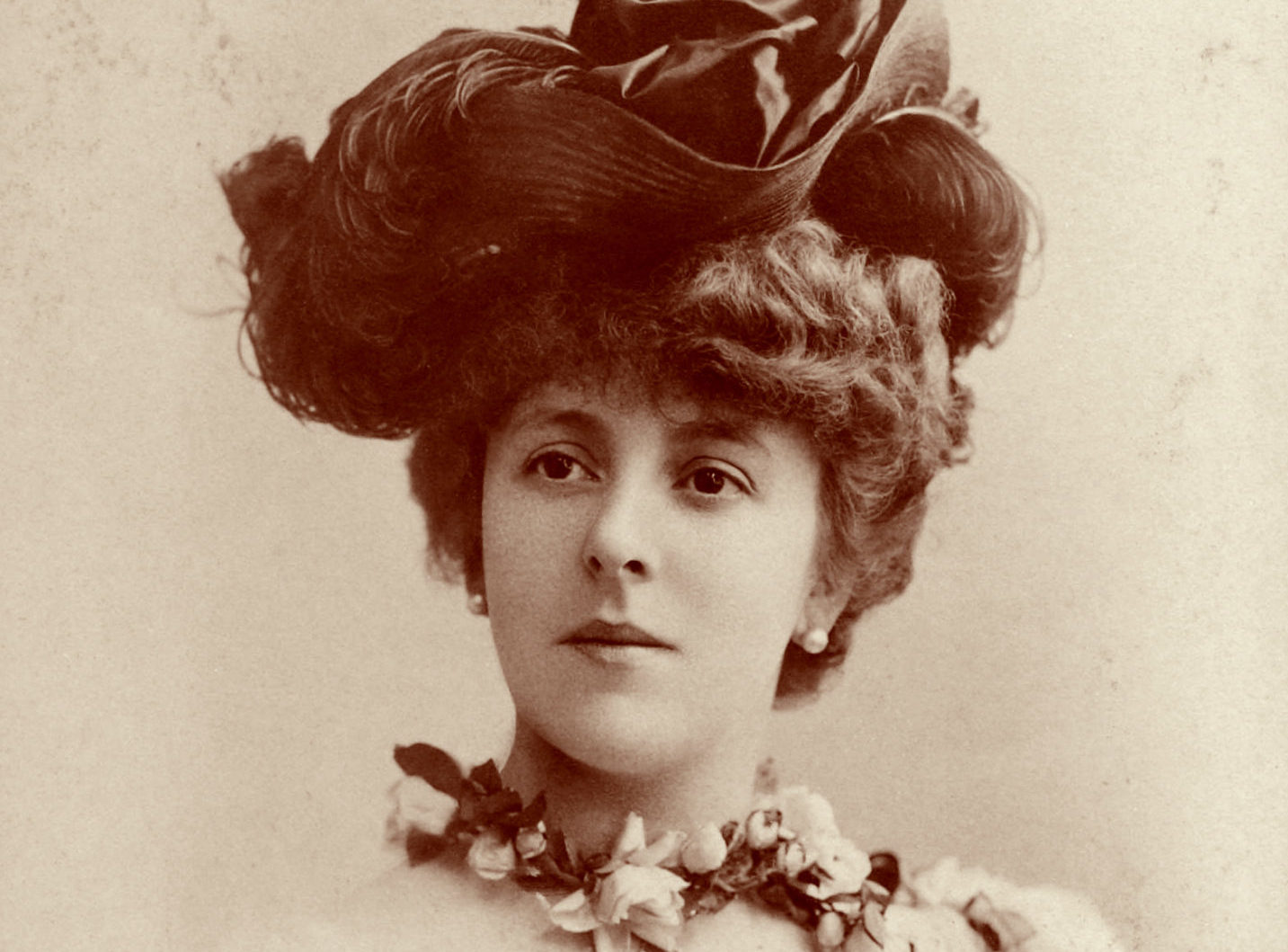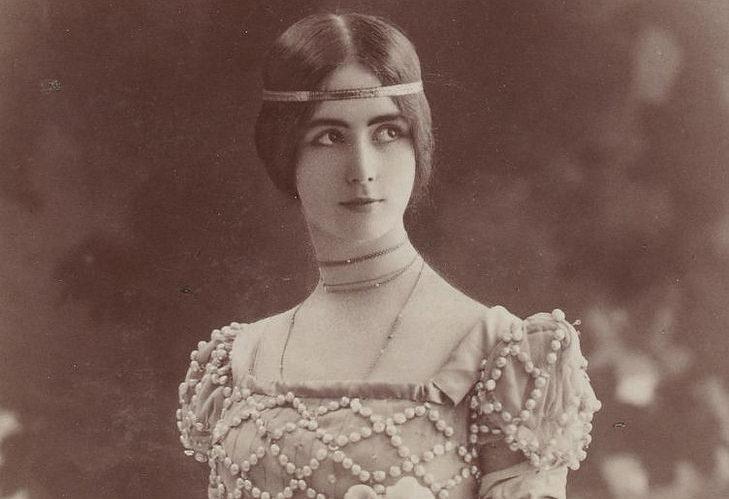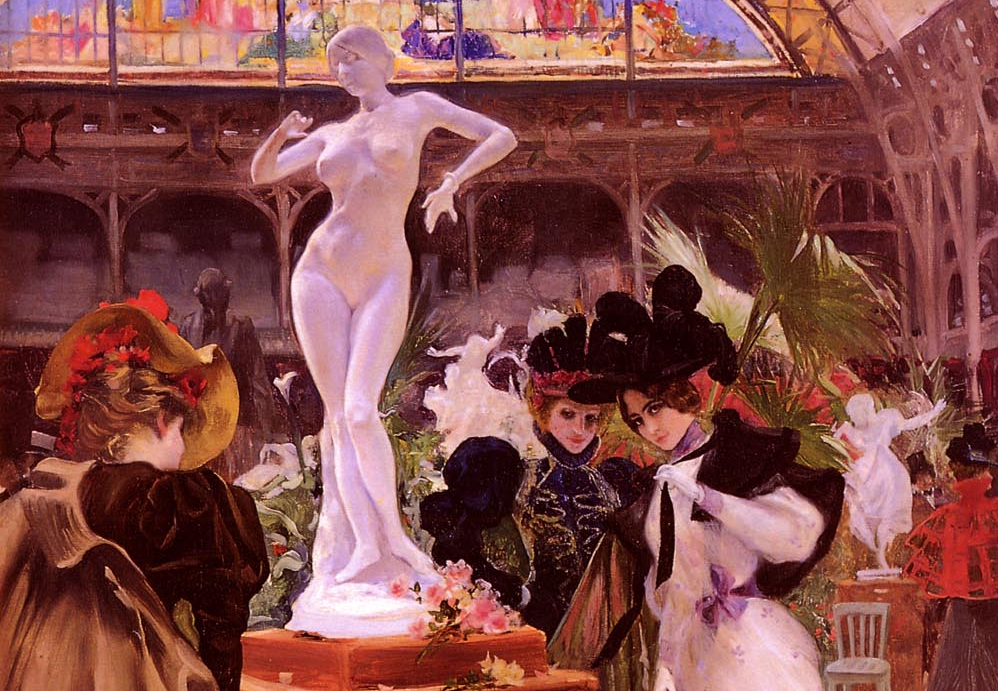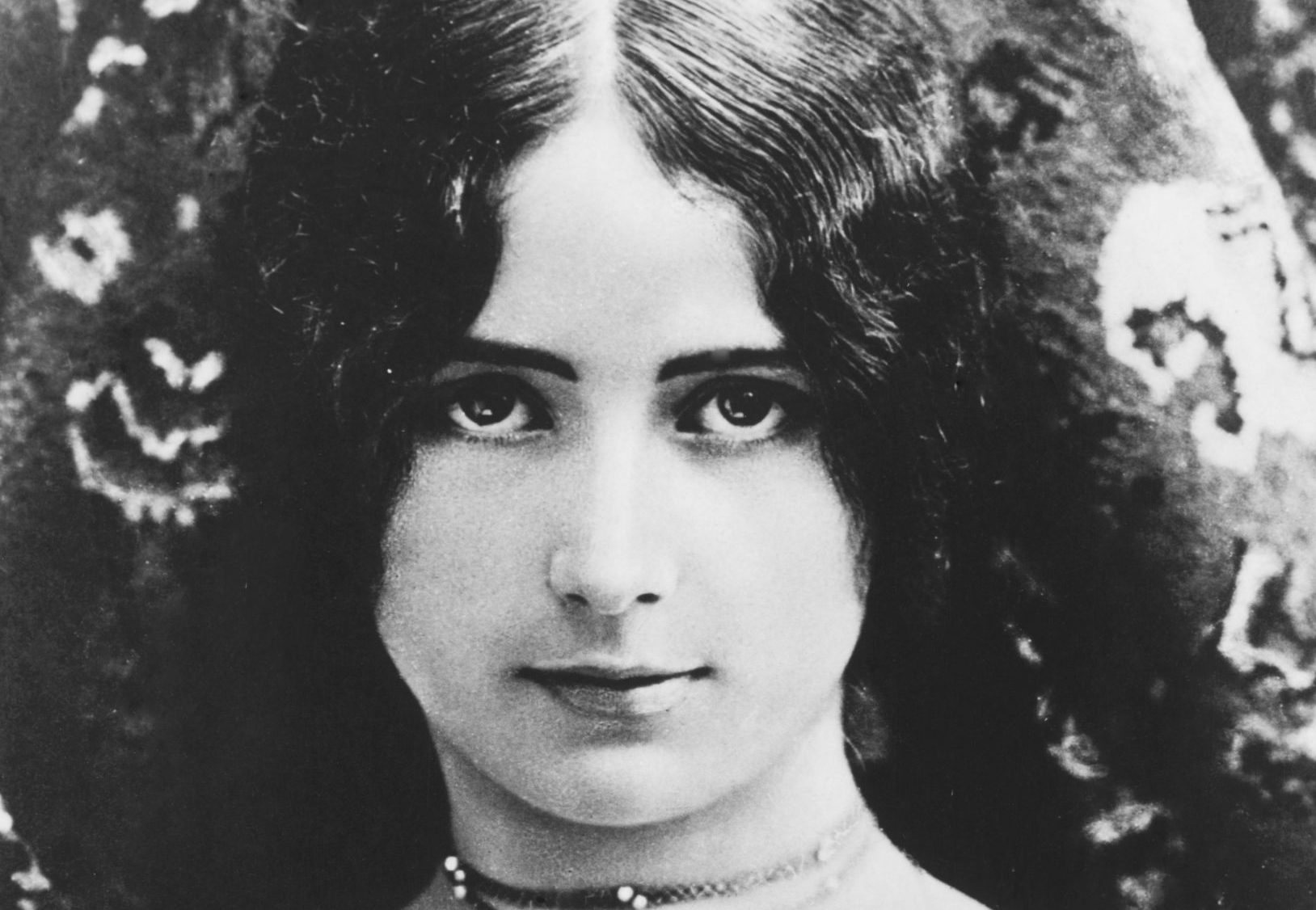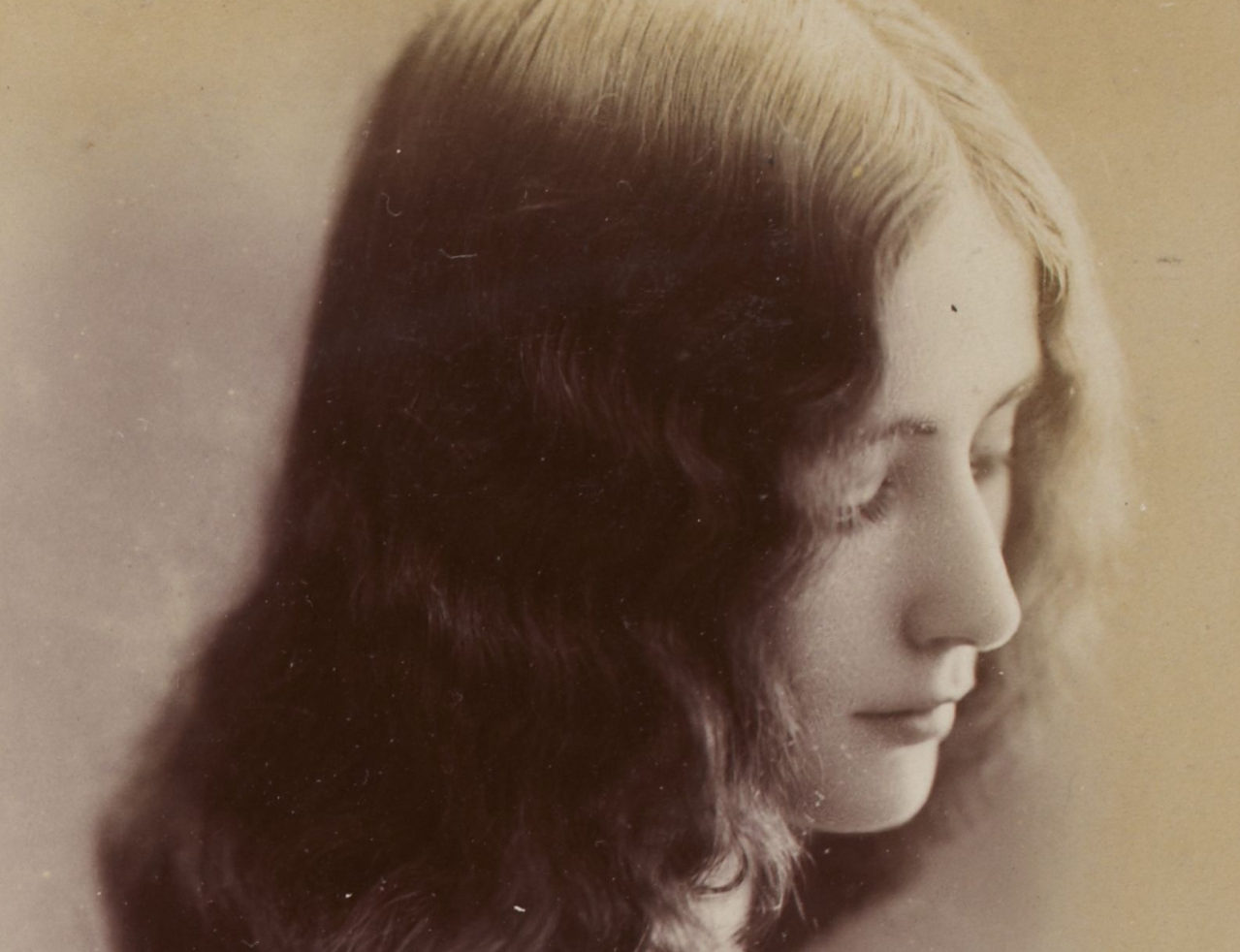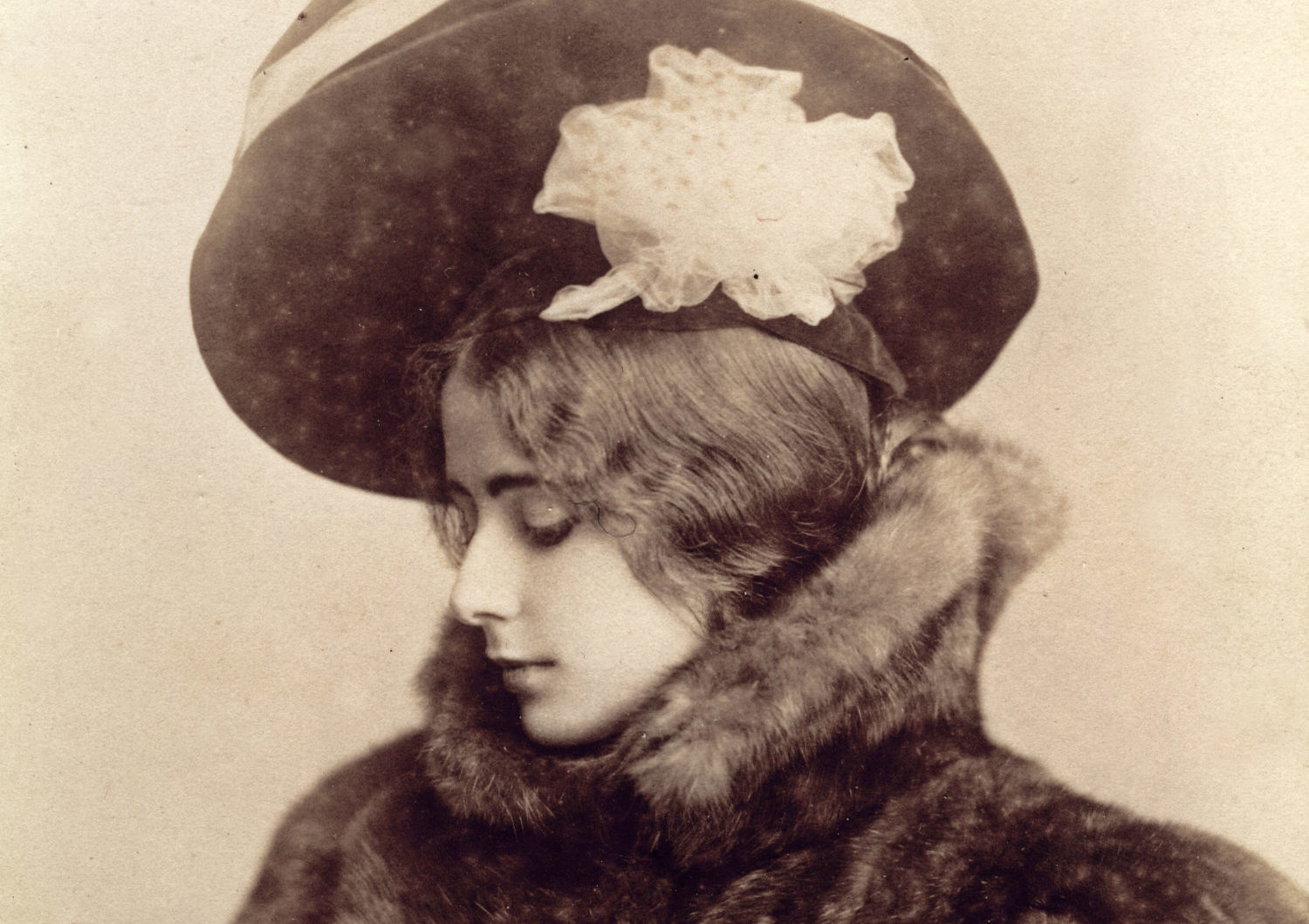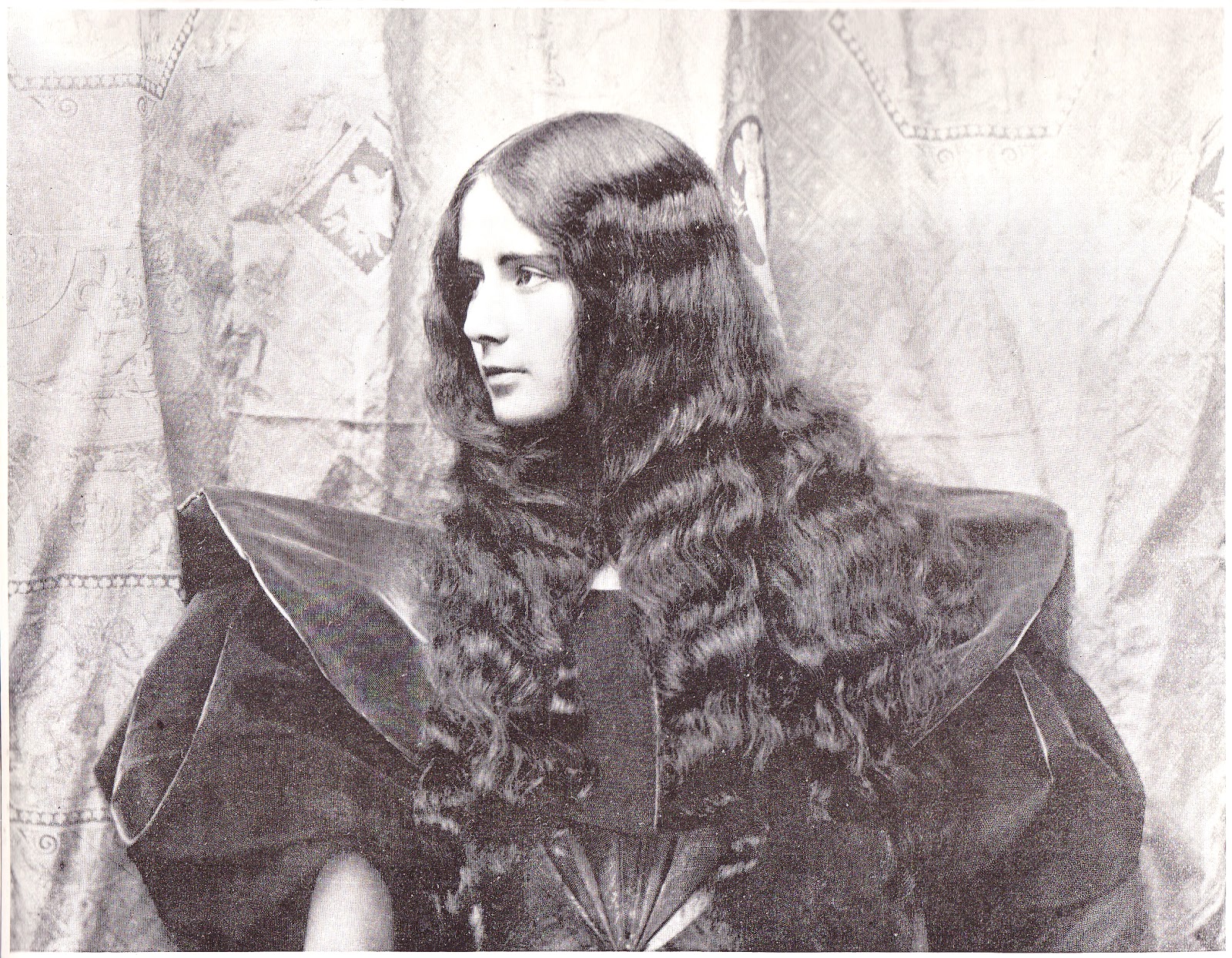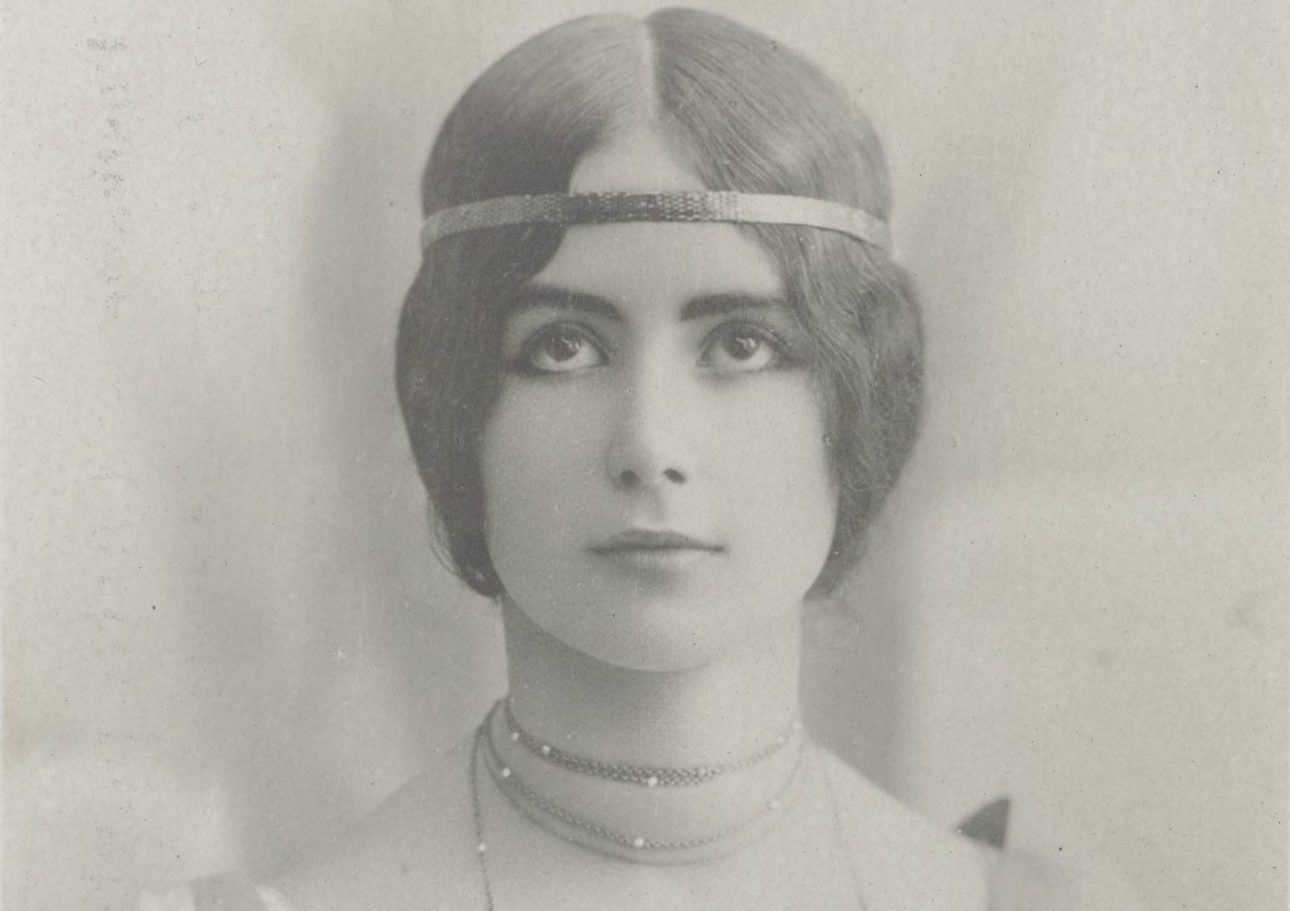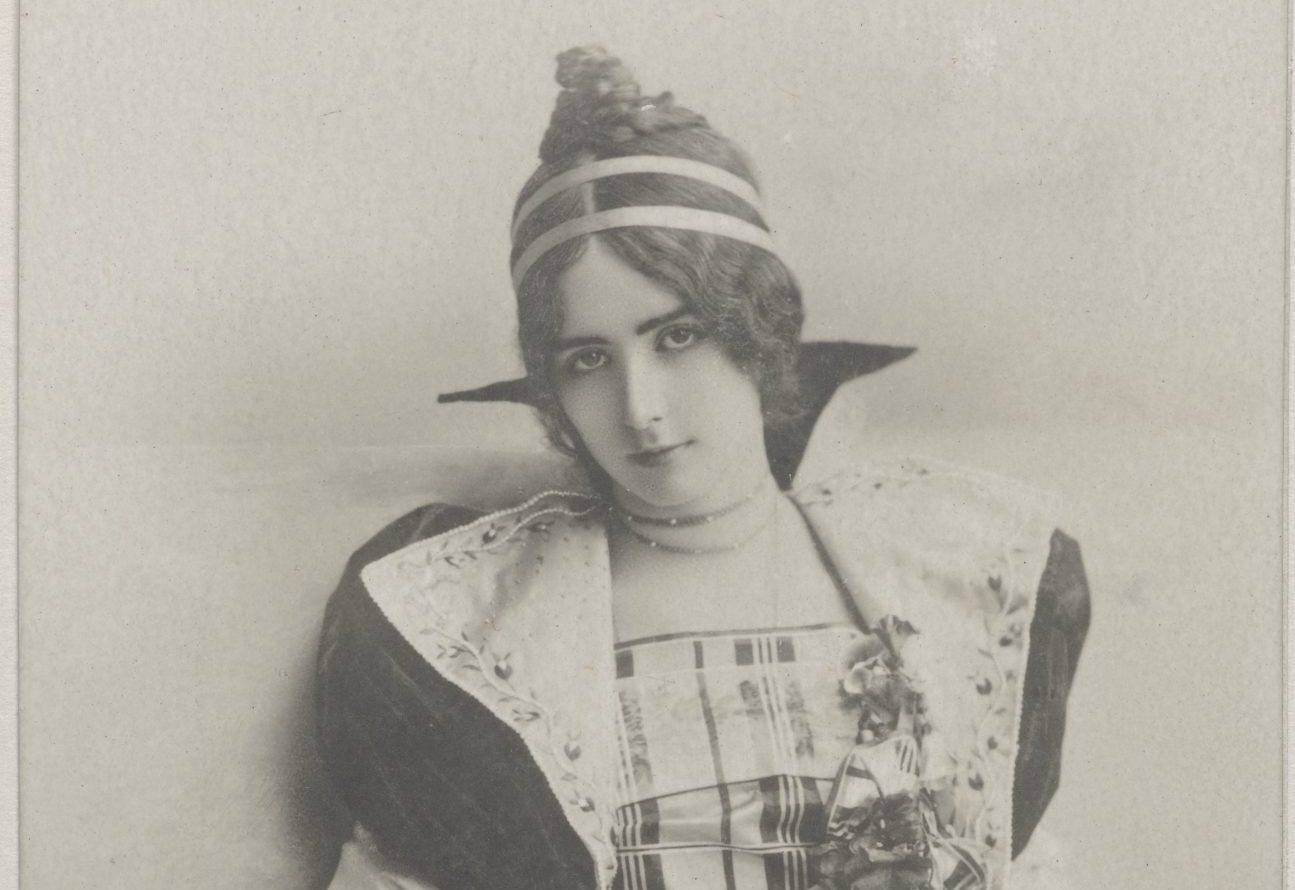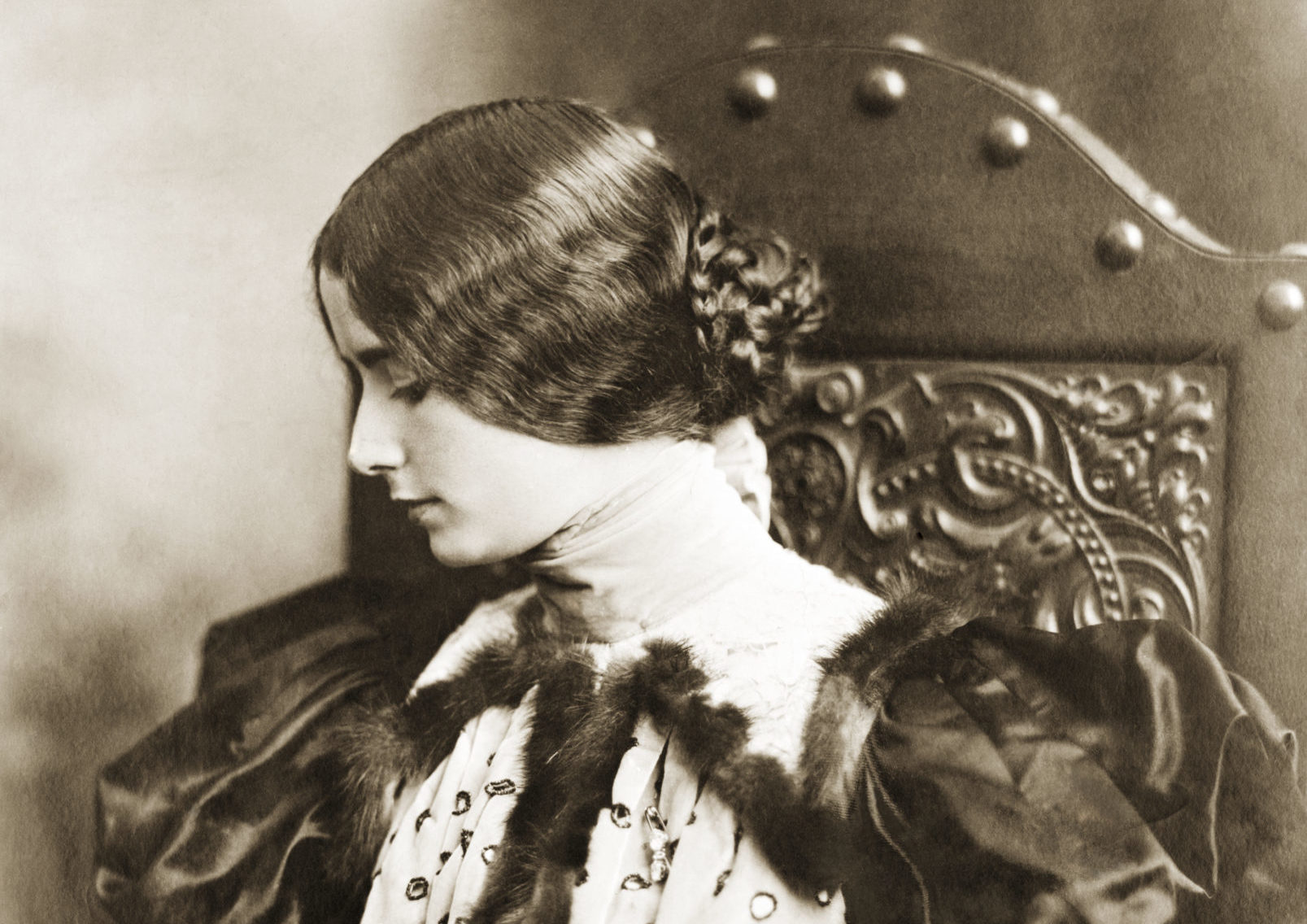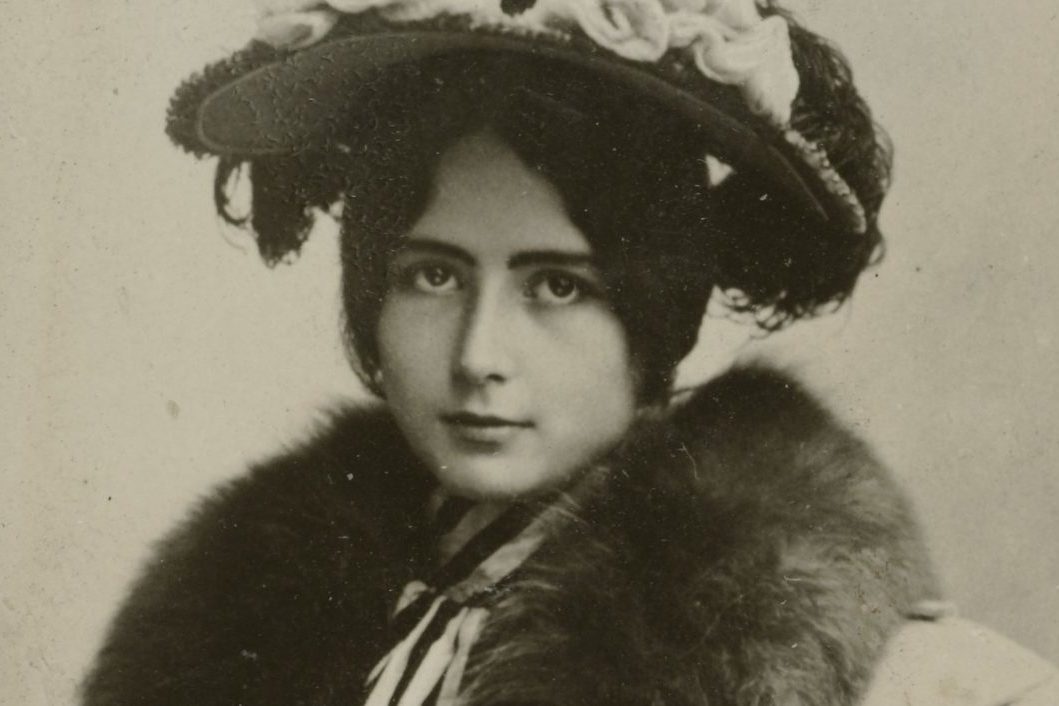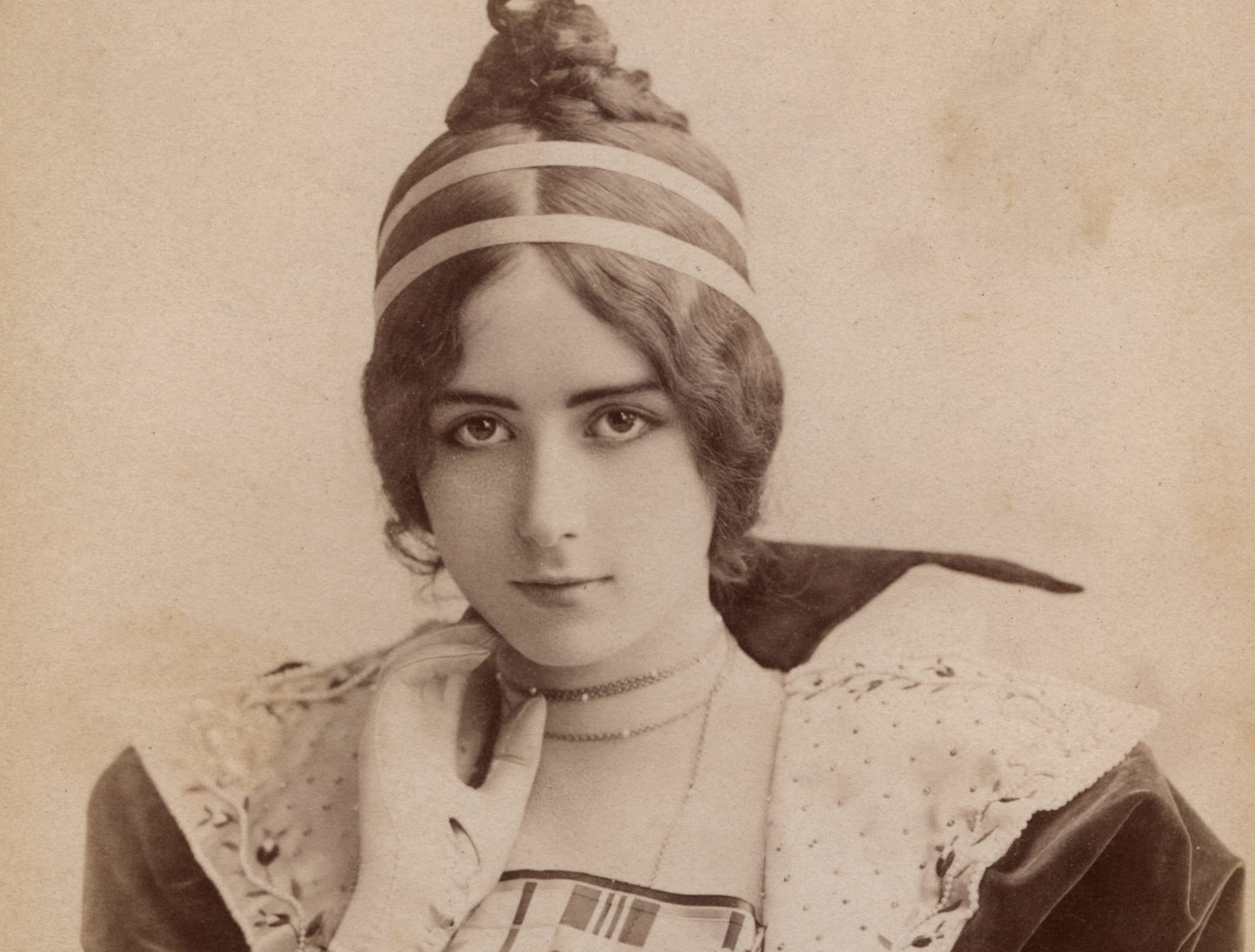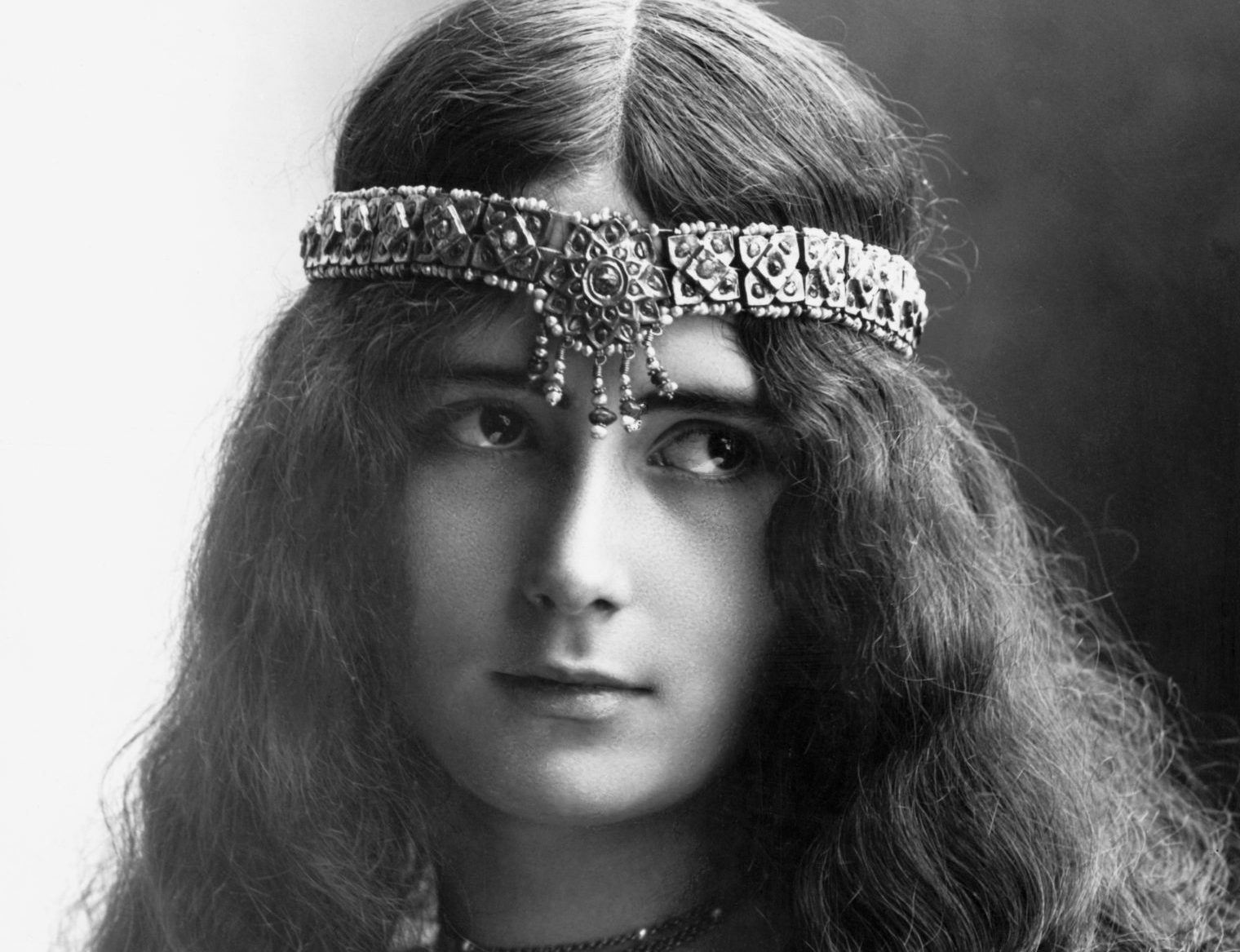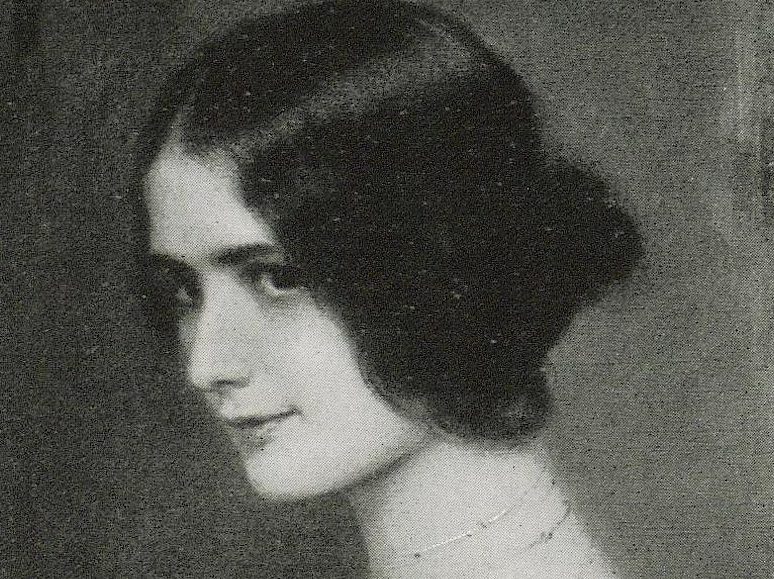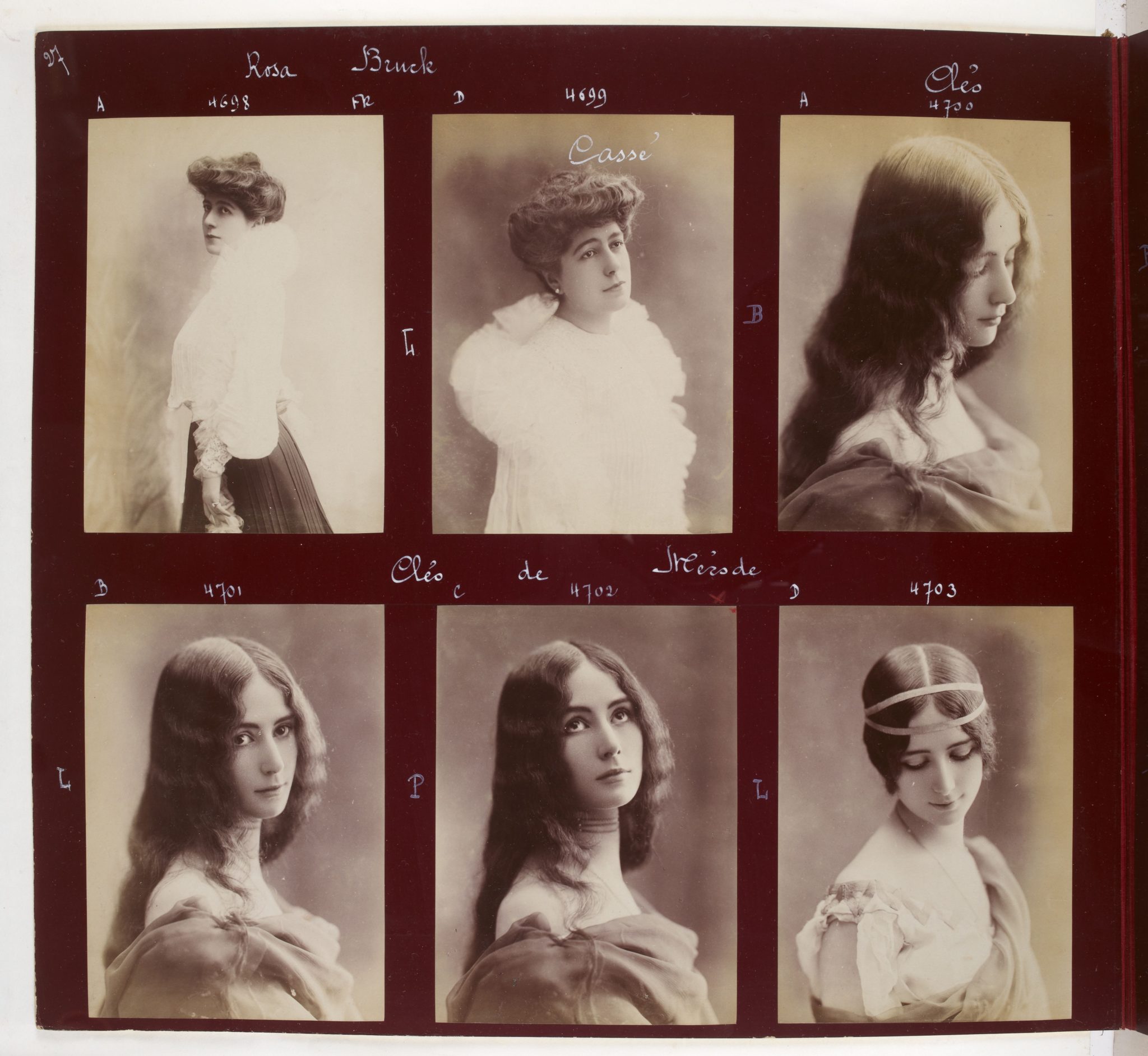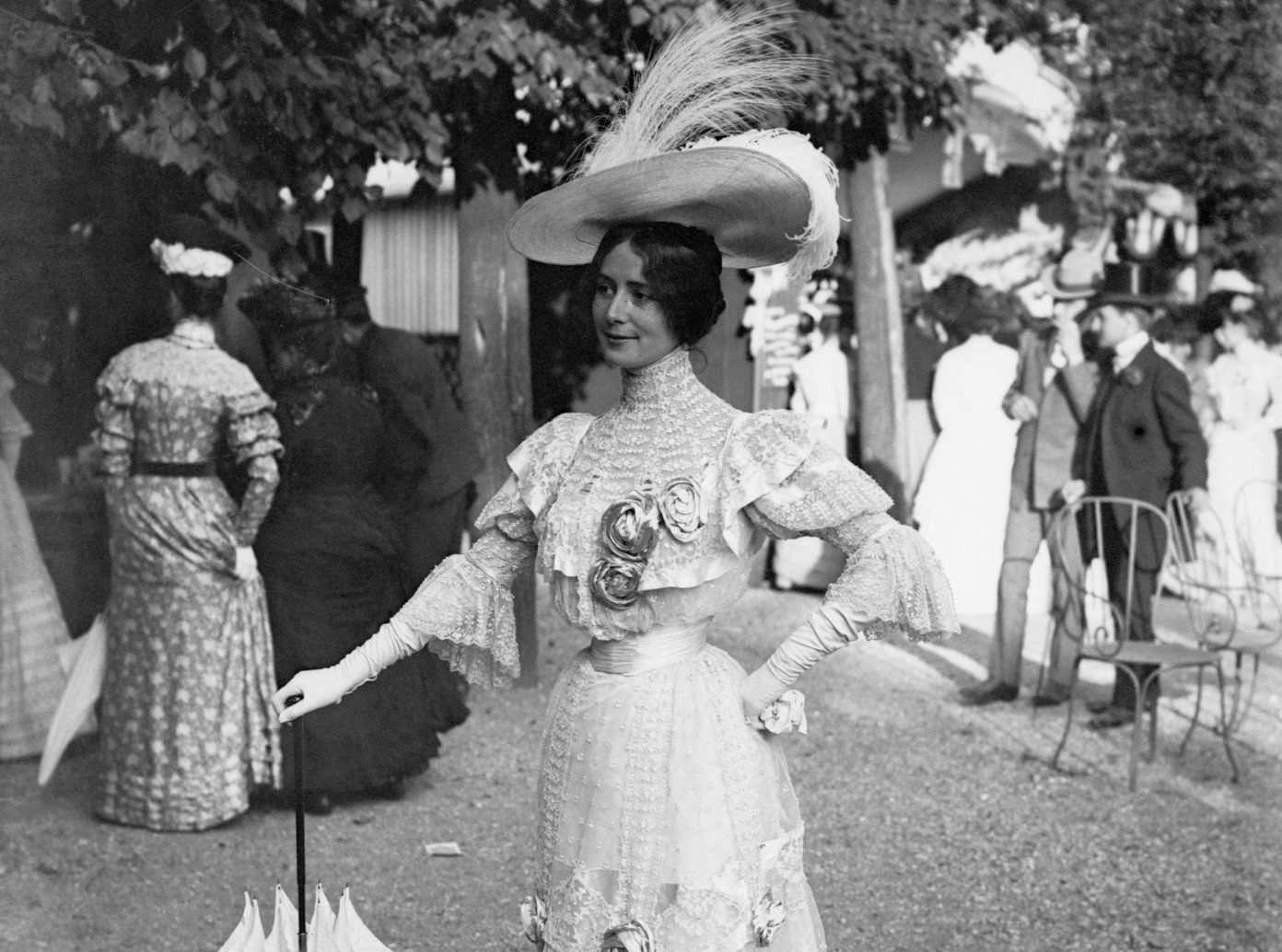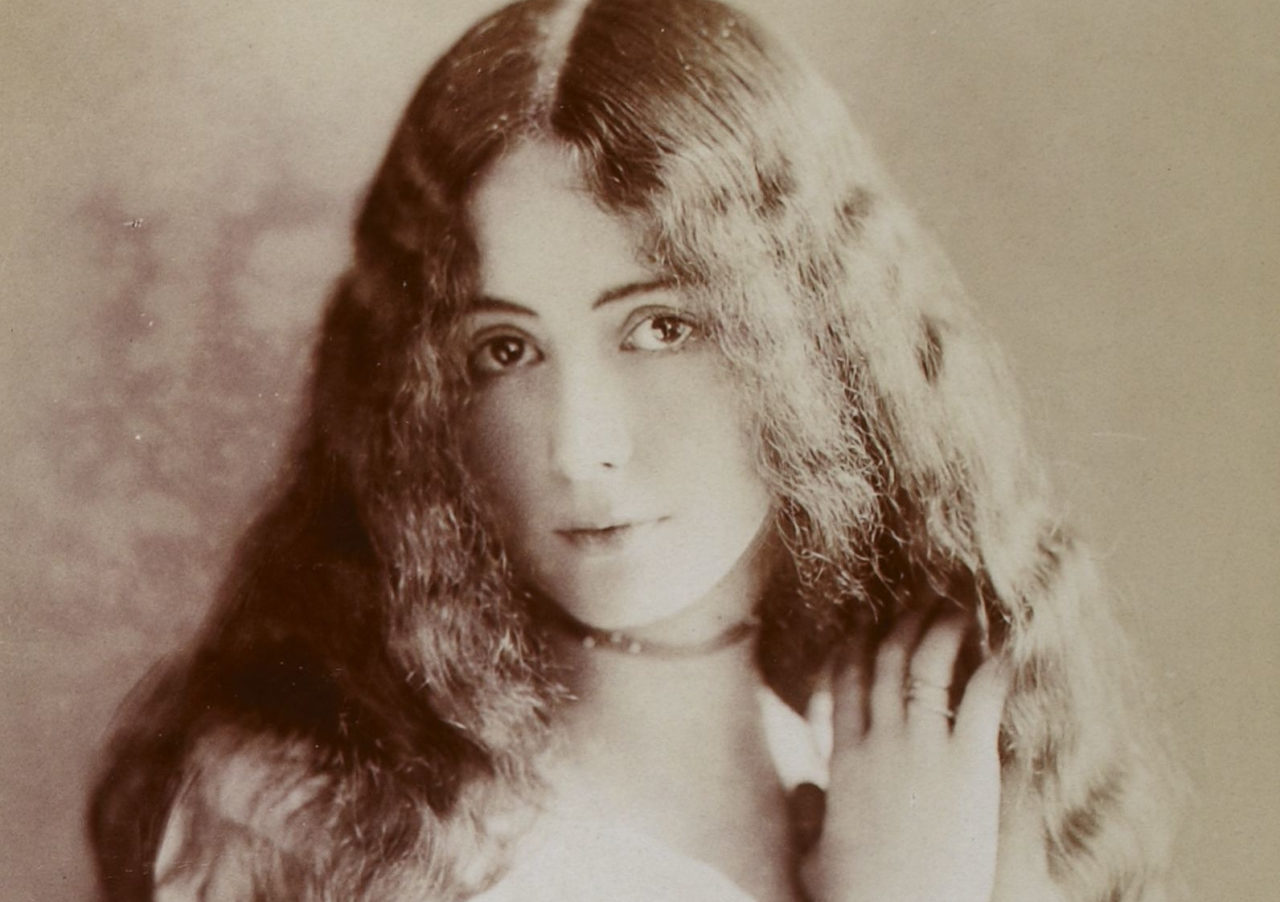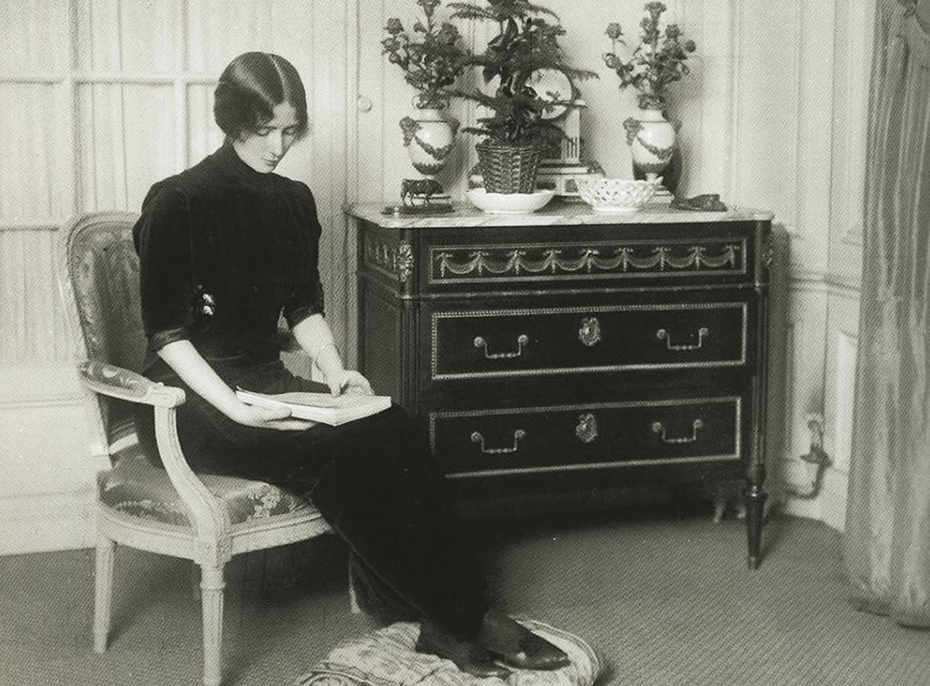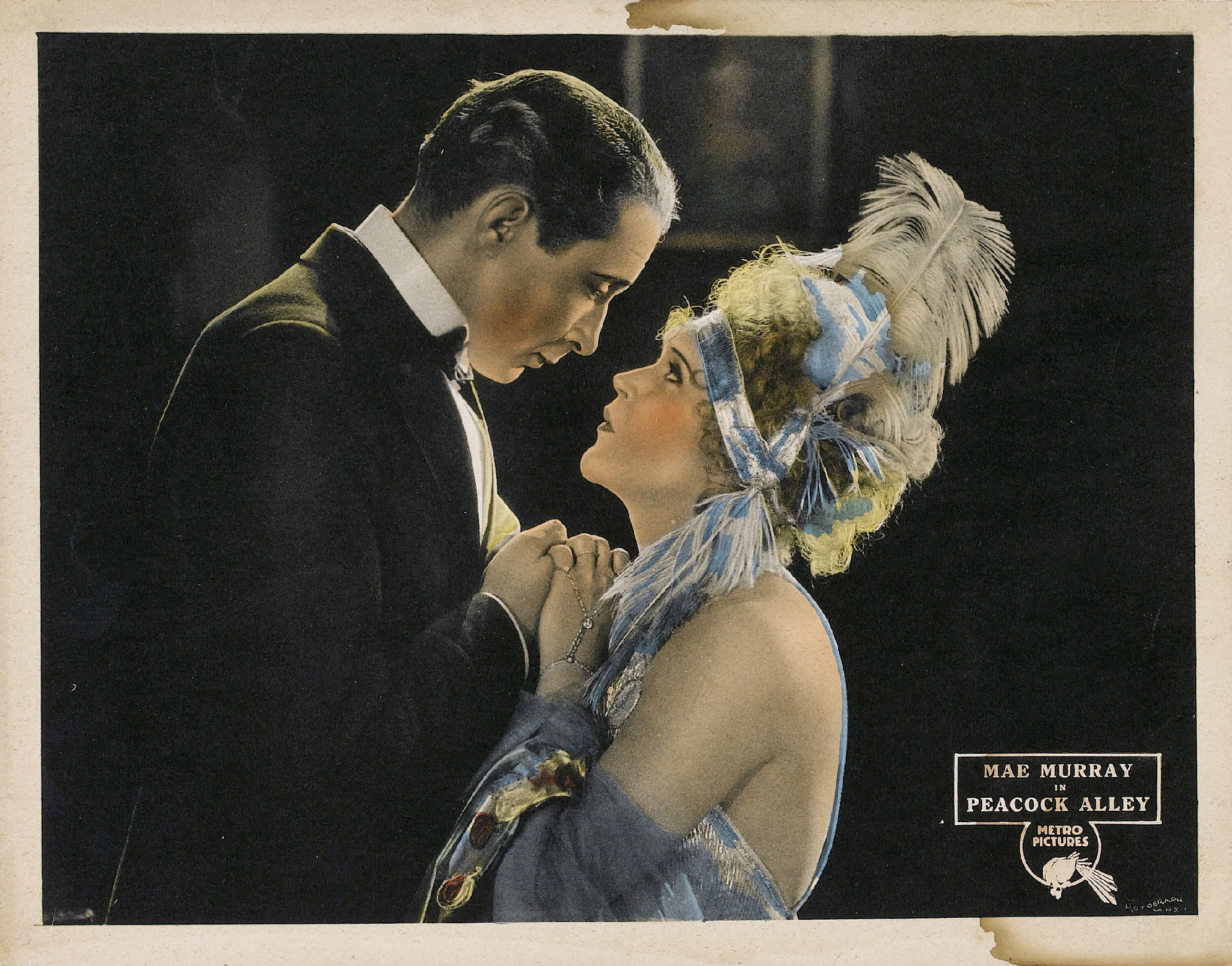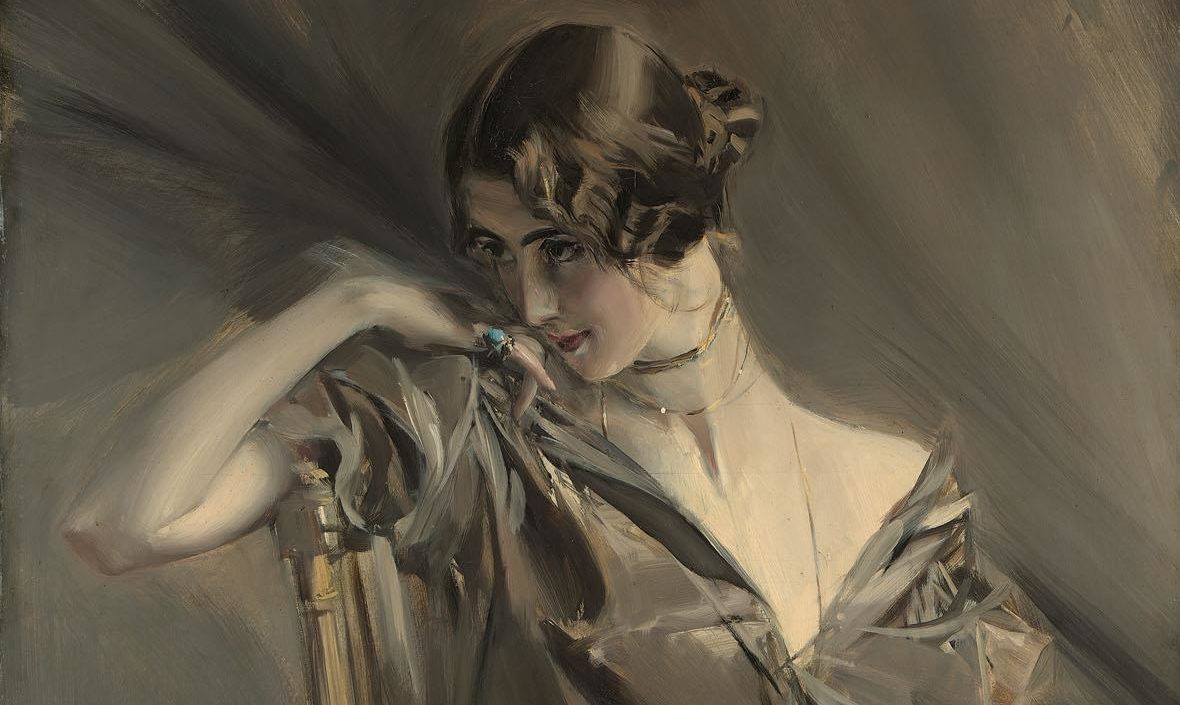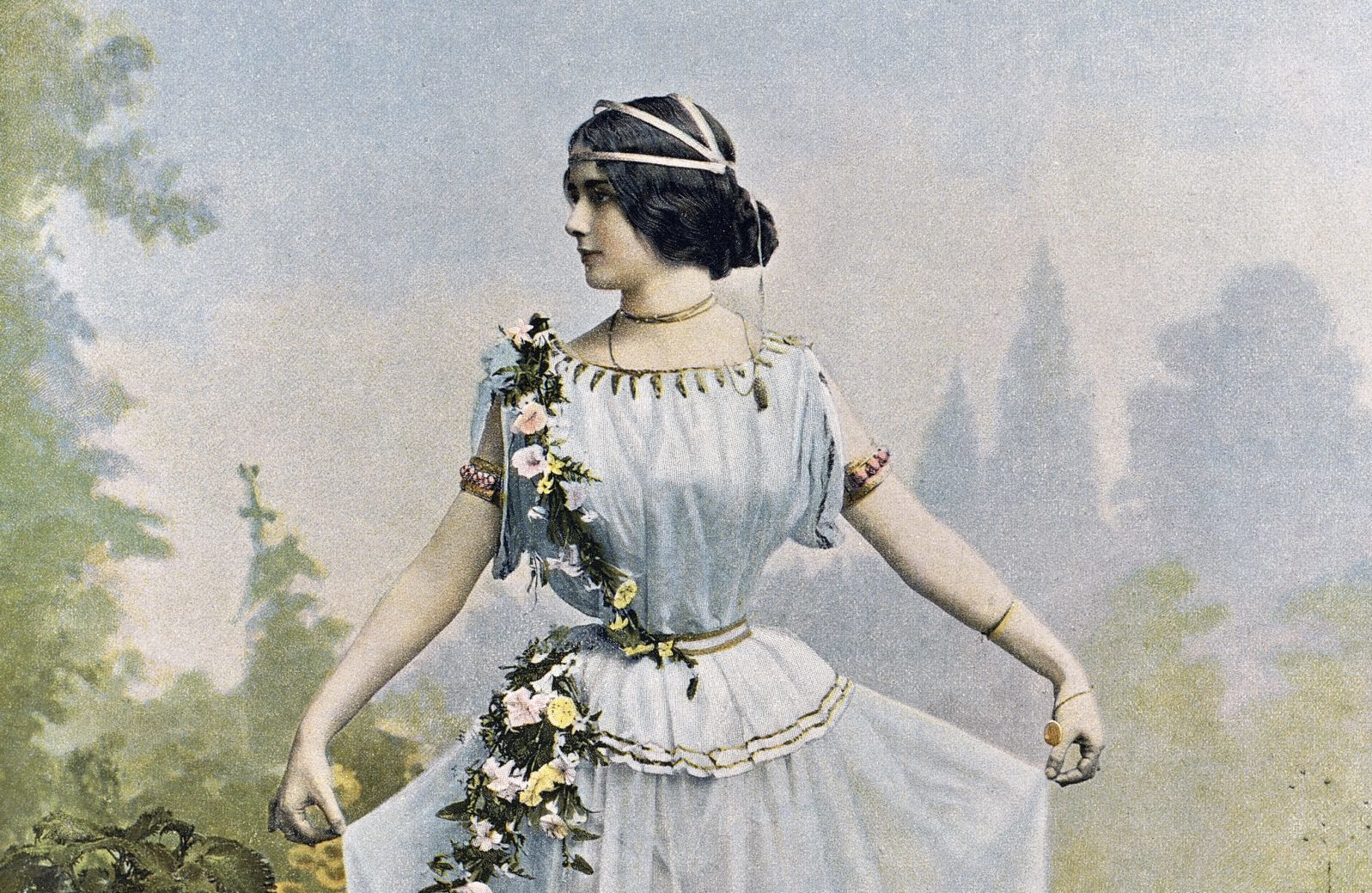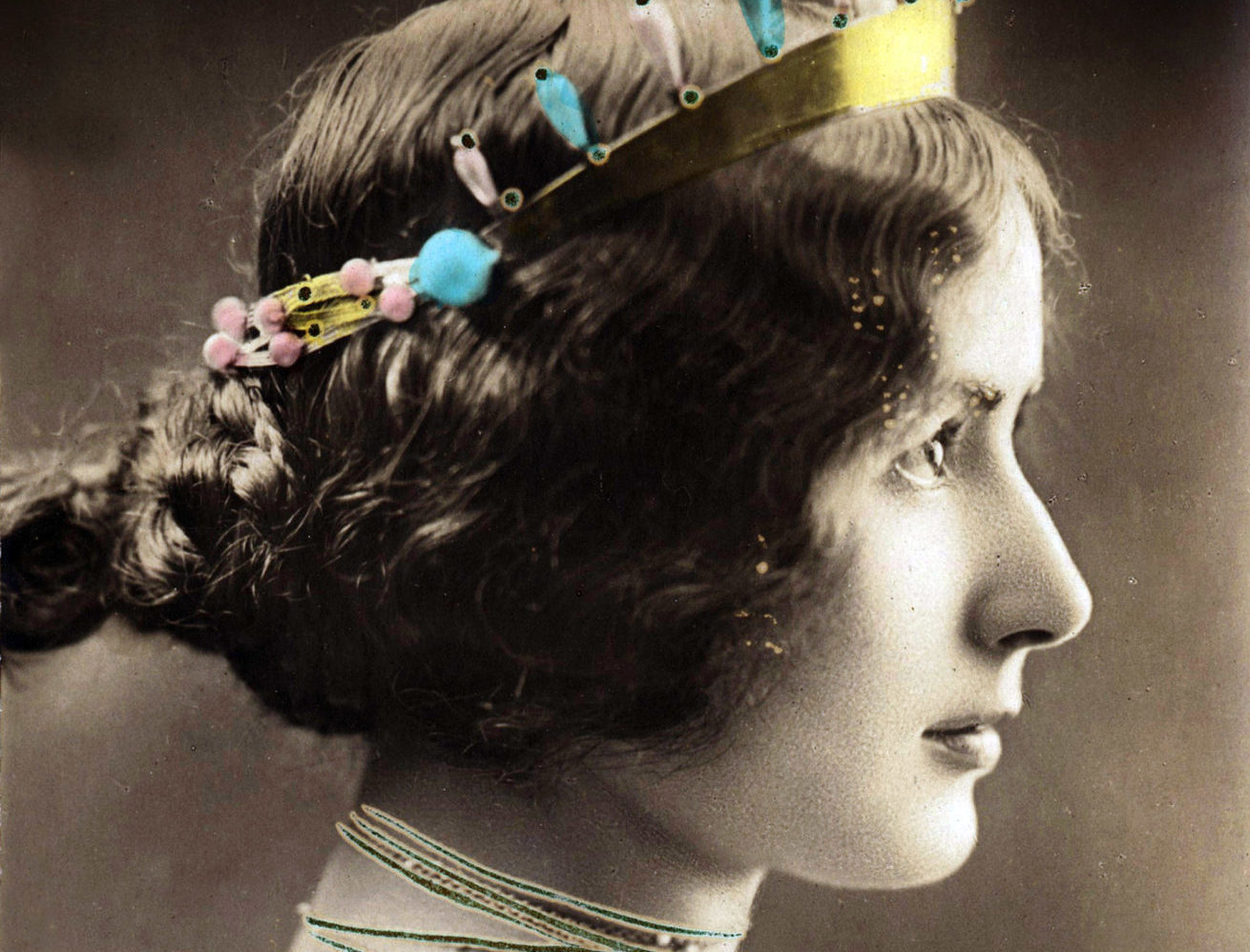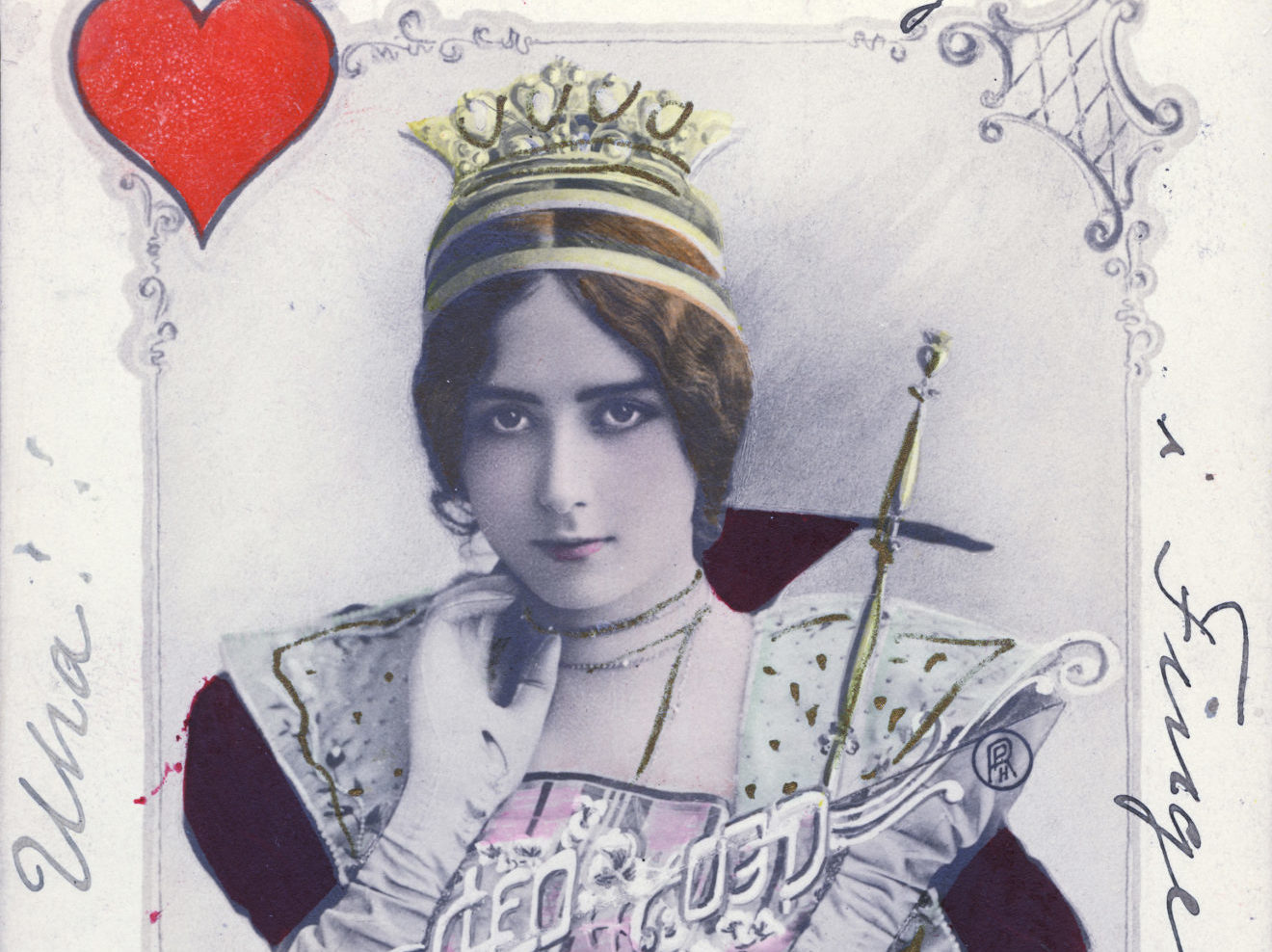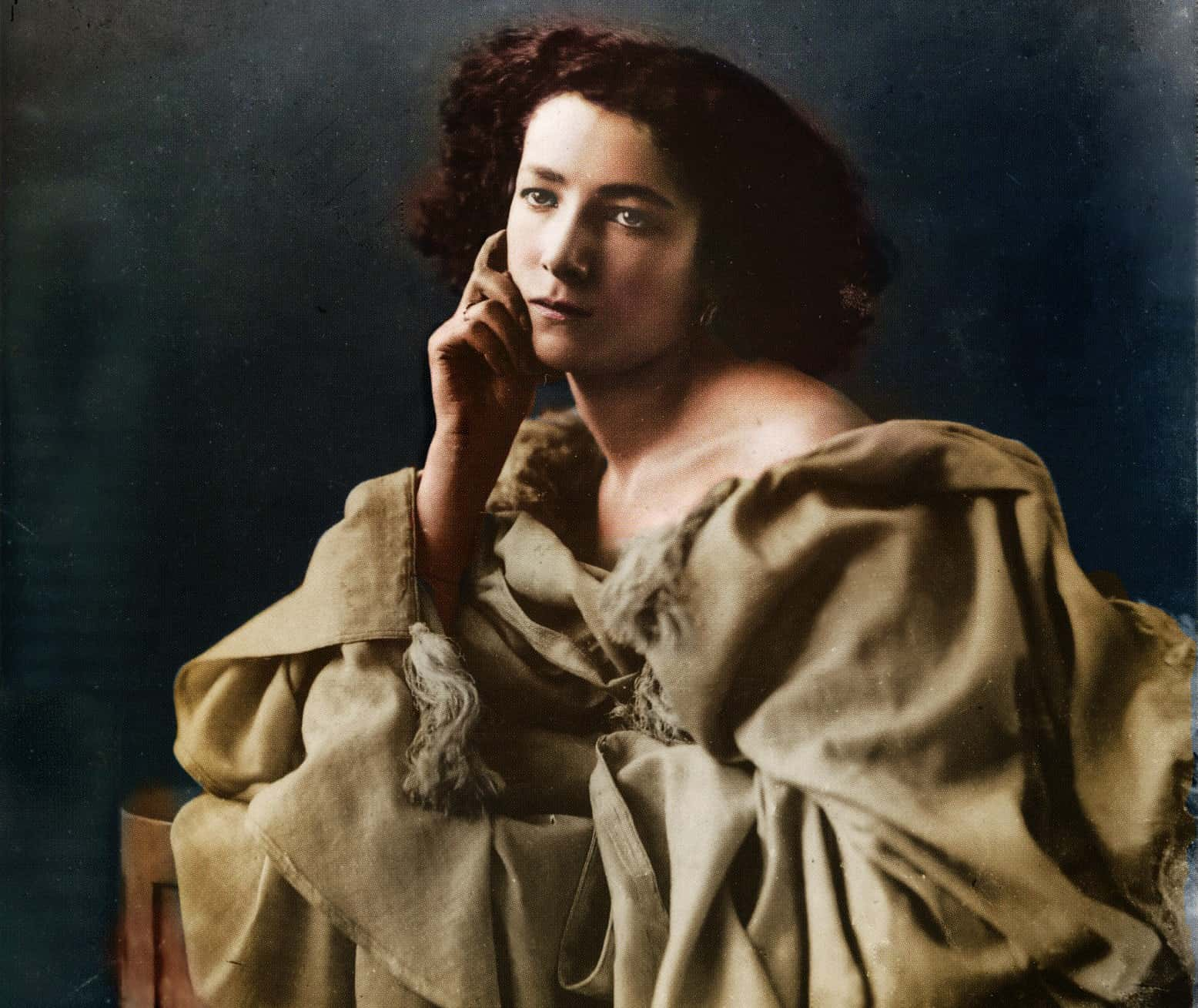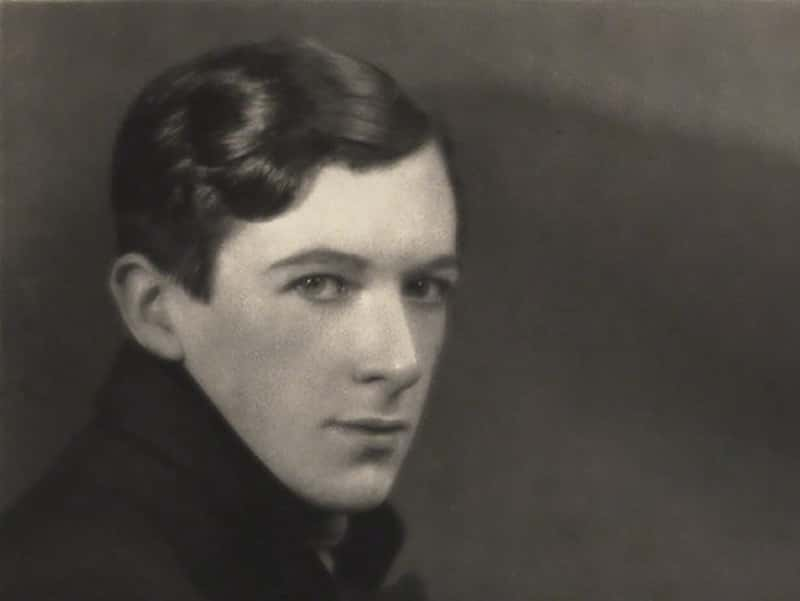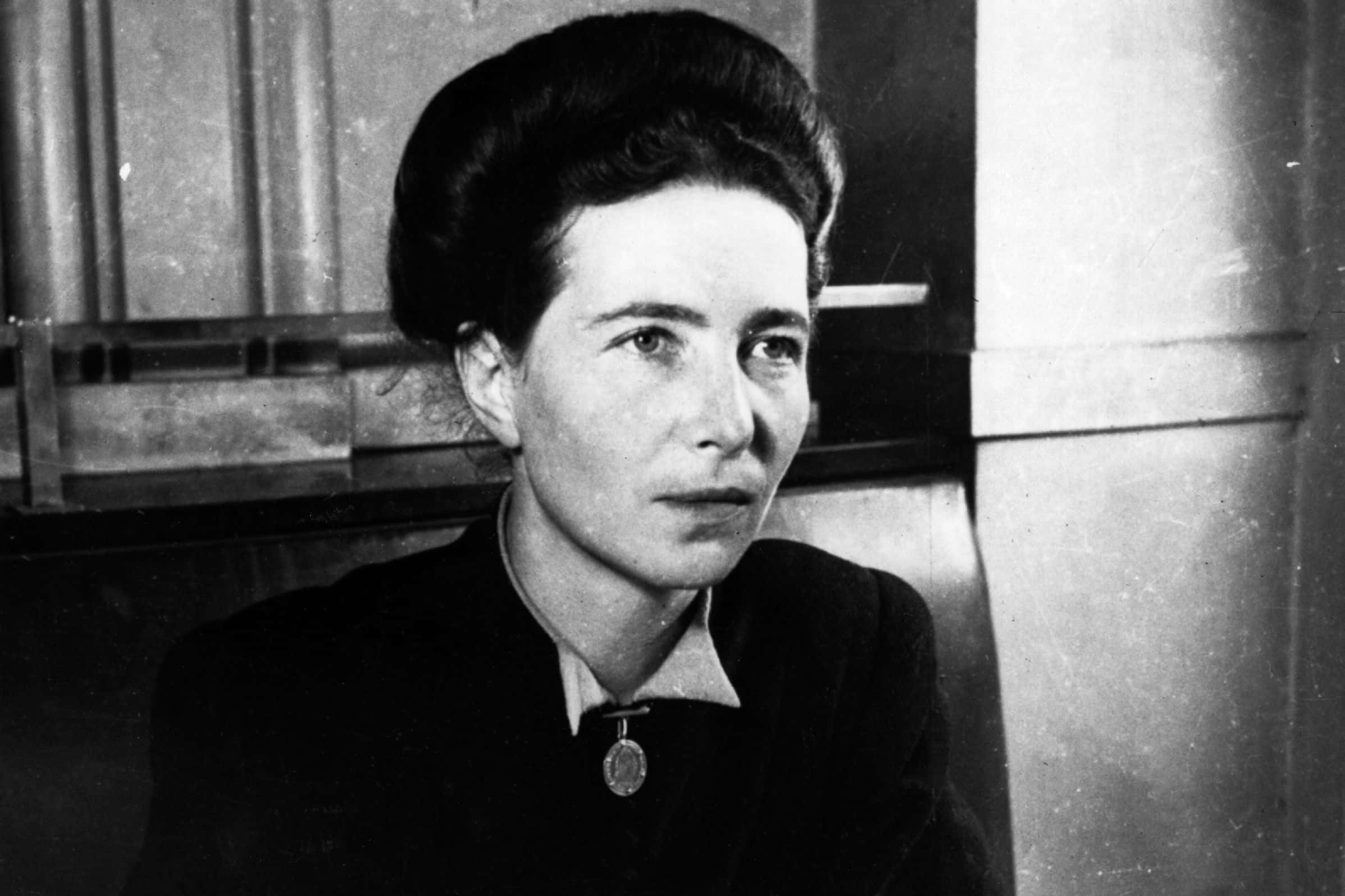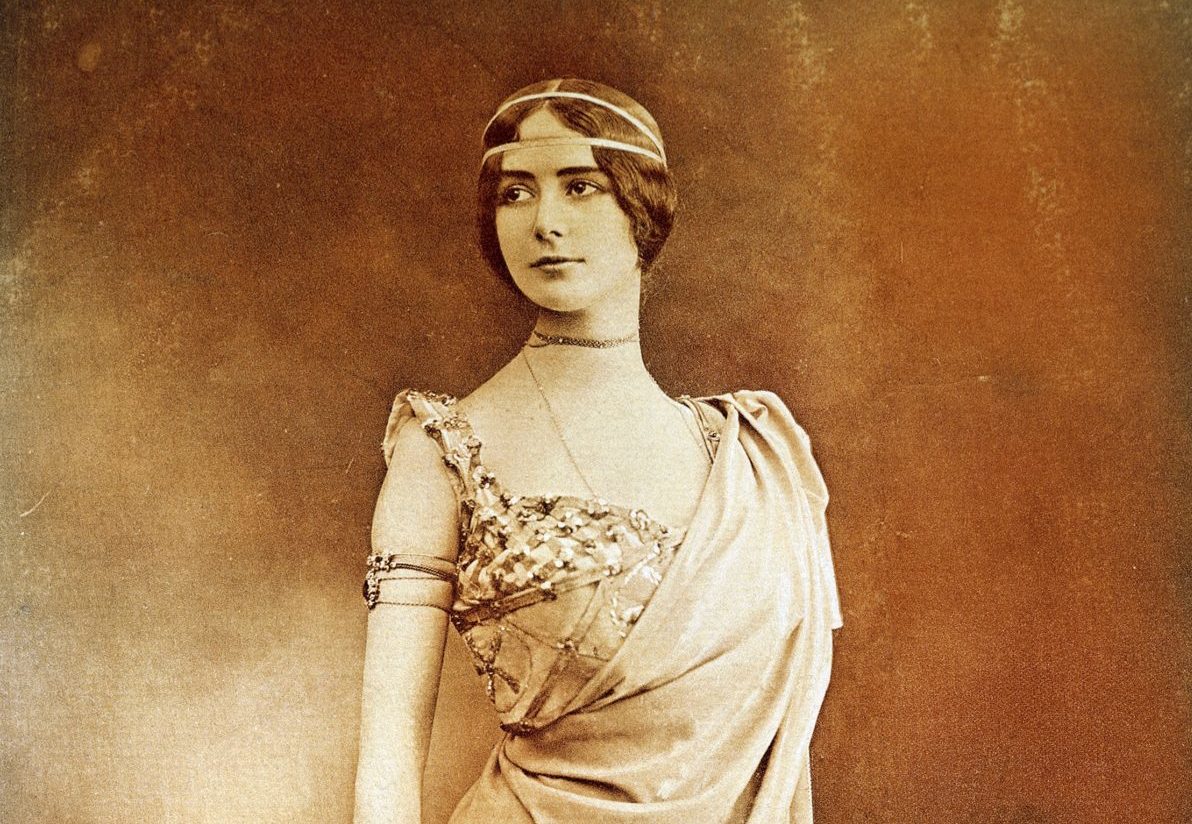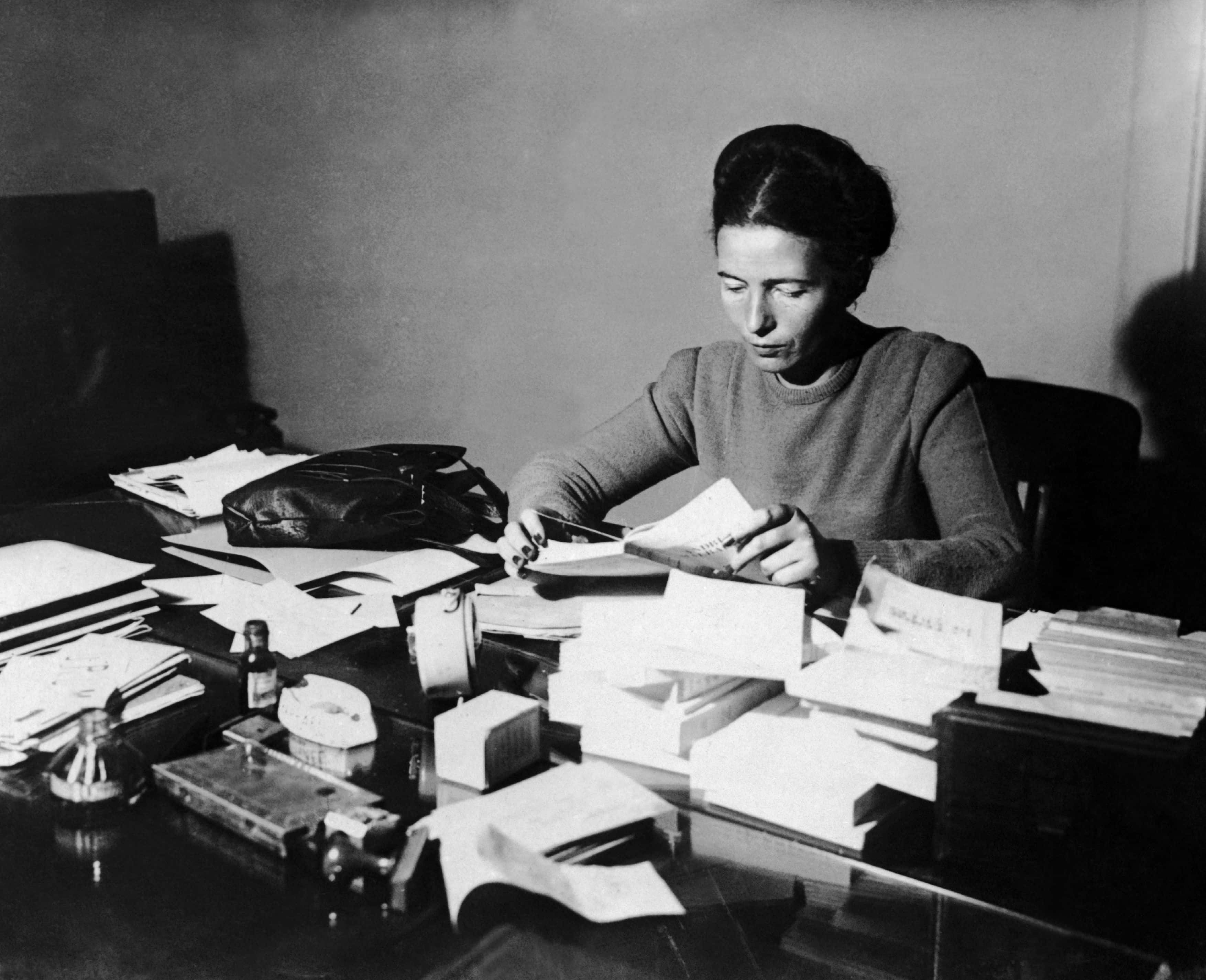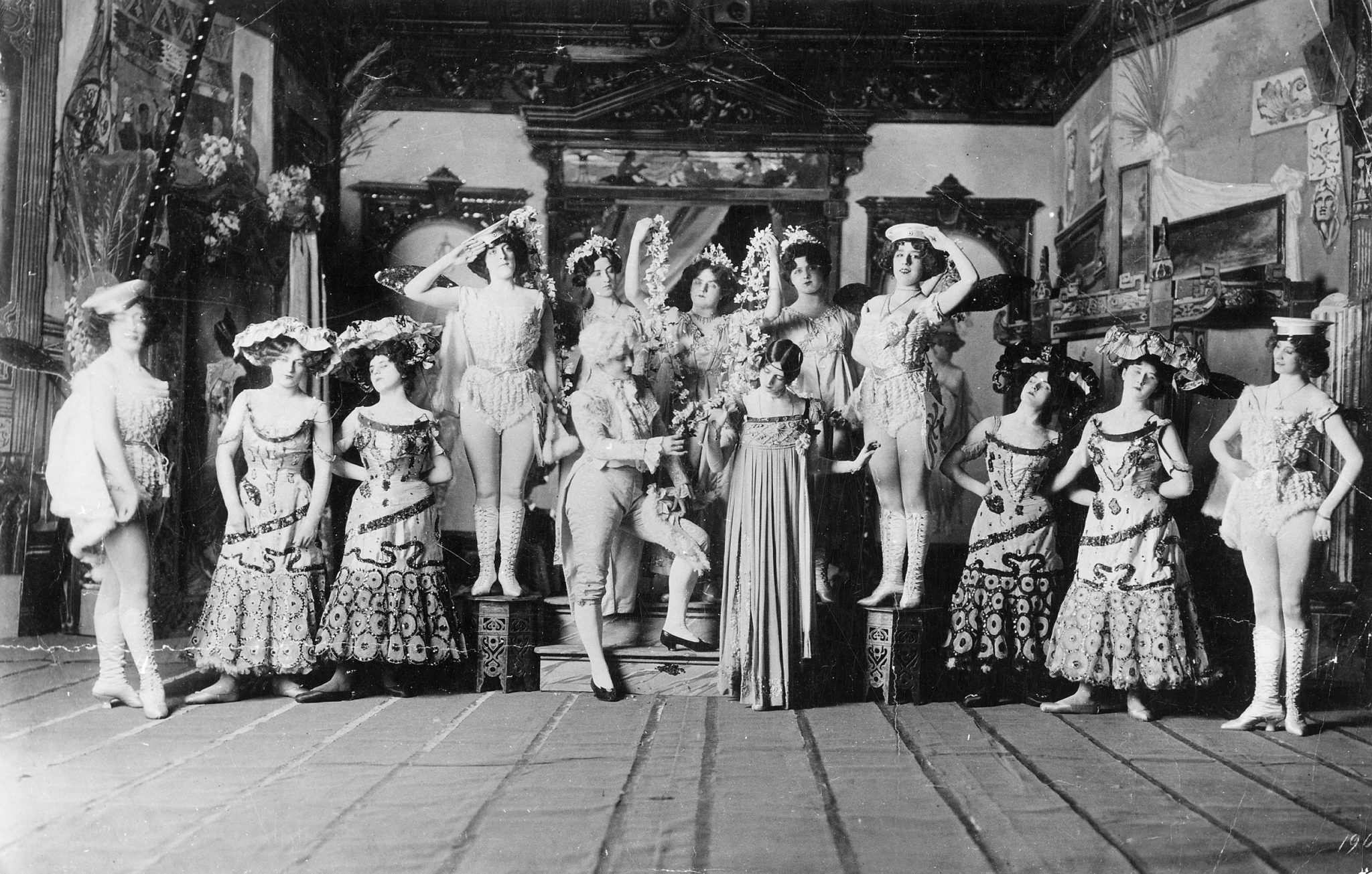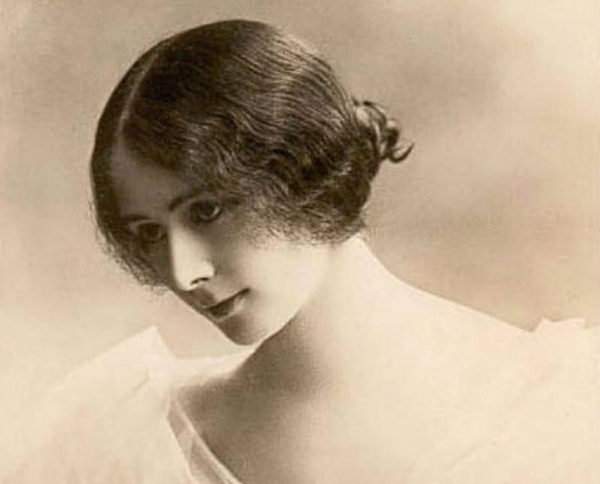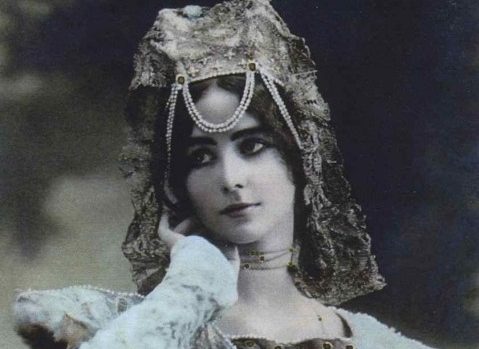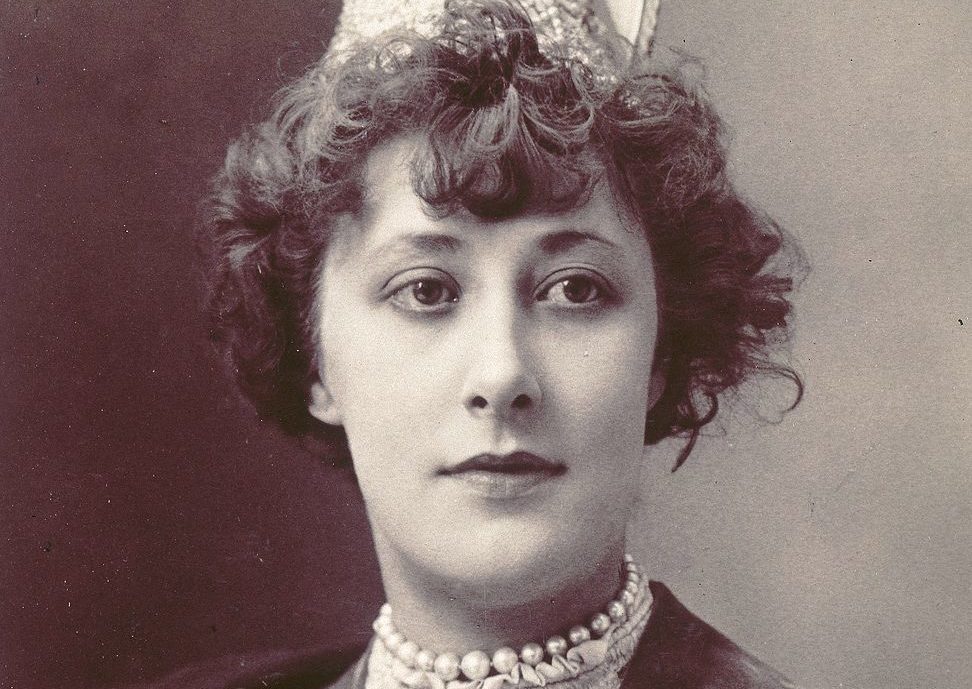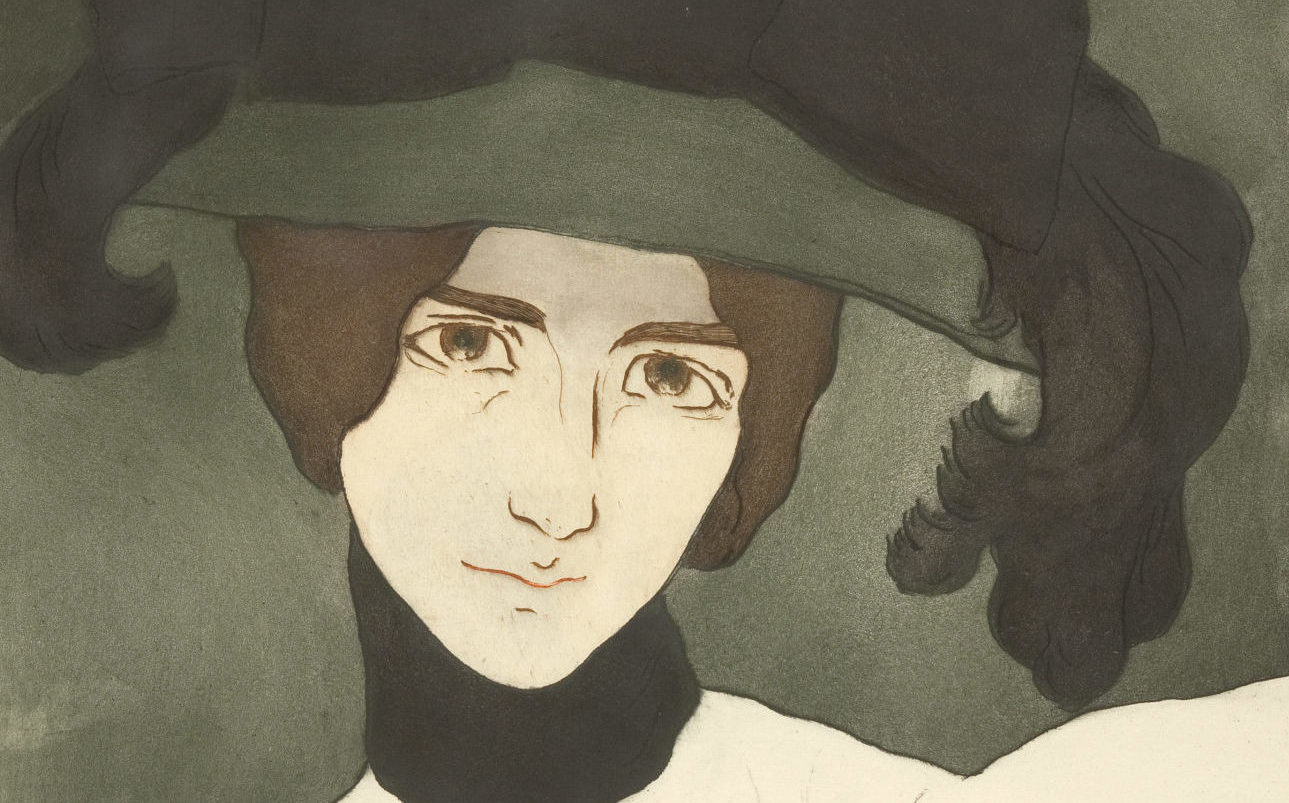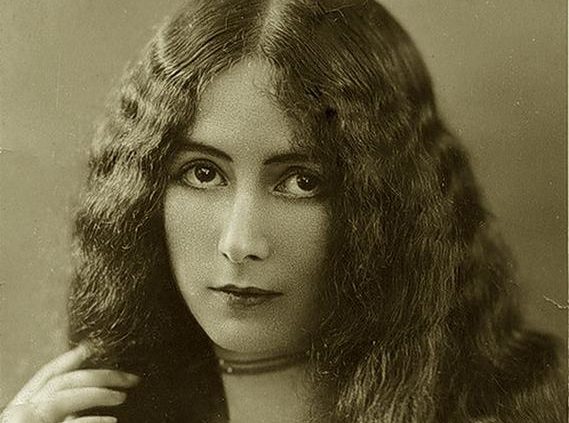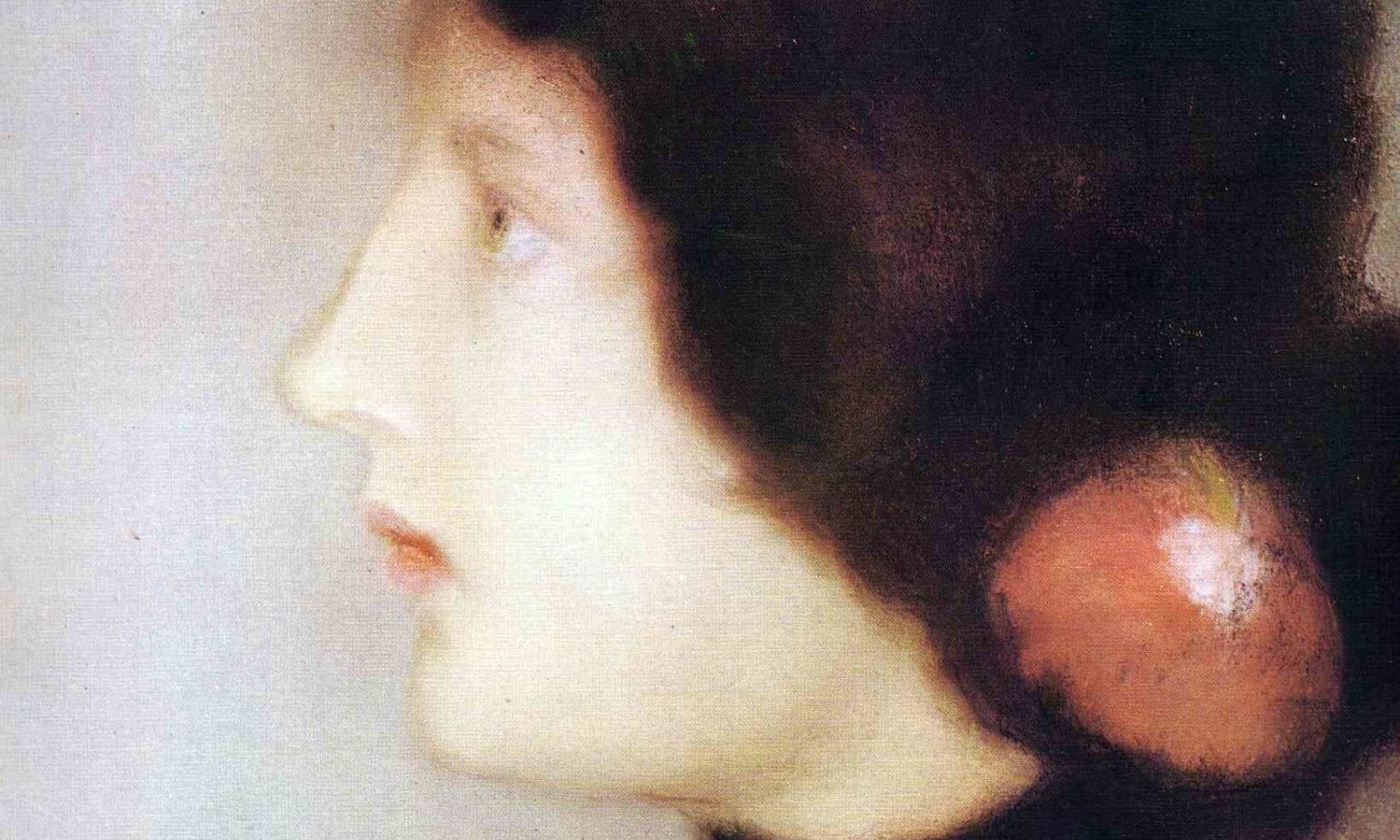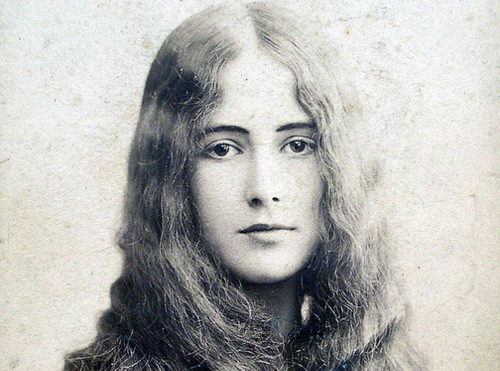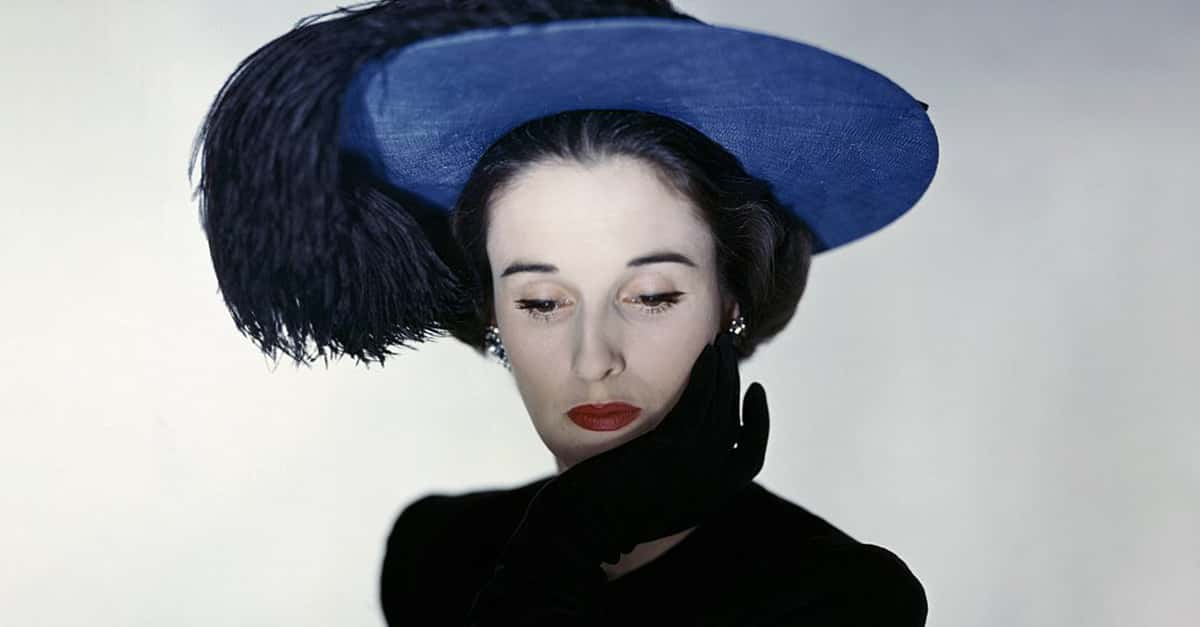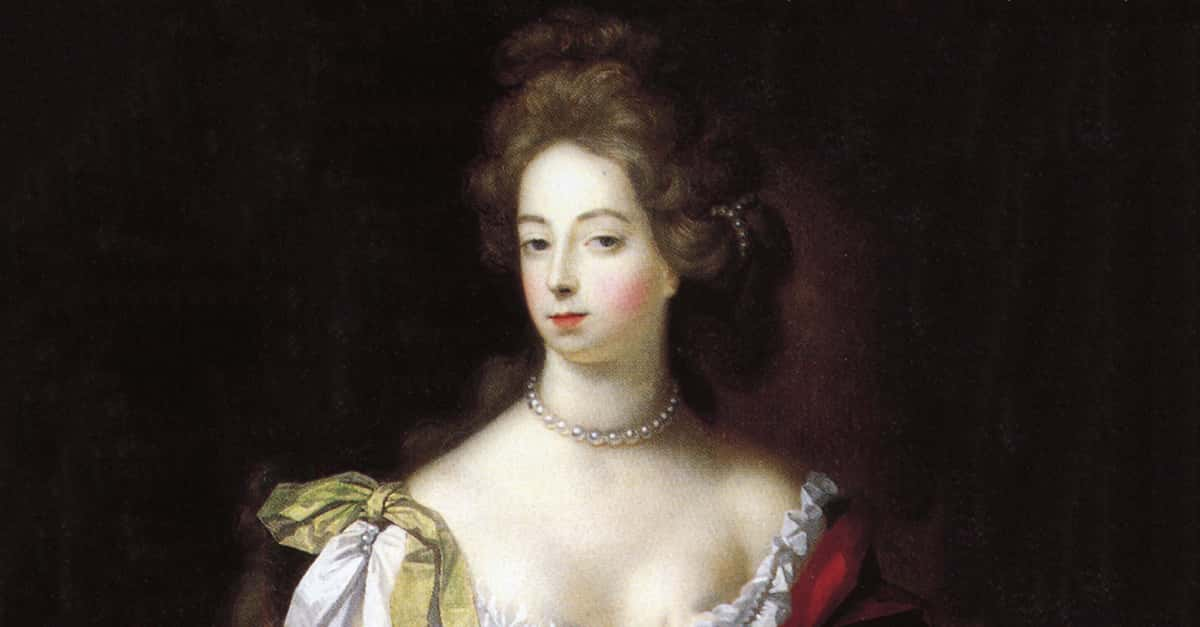In the Belle Epoque in France, no face was more recognizable than Cleo de Merode. With an unparalleled photogenic beauty that turned her into the first modern celebrity, Cleo’s likeness graced everything from playing cards to playbills before she even hit adulthood. But behind her perfect looks were some very dark surprises.
1. She Was Illegitimate
Looking back, it seems obvious Cleo de Merode was going to take the world by storm. Even her childhood was right out of some dark fairy tale. Born in Paris in 1875, de Mérode was the daughter of the Viennese Baroness Vincentia de Mérode—but that didn’t mean Cleo had it easy. That’s because her father was another matter entirely.
Factinate Video of the Day
2. She Didn’t Know Her Father
While Cleo’s mother doted on the girl, her father wasn’t in the picture at all, so much so that some people initially identified her uncle, Carl von Mérode, as her father. In reality, her absent daddy was the Austrian judge Theodor Christomannos, and she only met him for the first time when she was a young woman. But by then, Cleo had already skyrocketed to fame.
3. She Got Famous As A Child
Cleo’s family obviously knew they had something special on their hands, because they packed the girl off to dance school when she was only eight years old. Everything moved fast from there. Cleo had always been astonishingly captivating, both in photos and on stage, and by the time she was 11, she had made her debut at the Paris Opera.
Within five years, she was causing her first scandal.
4. She Had A Signature Hairstyle
When Cleo de Merode was 16, she decided to change up her hairstyle—having no idea that it was about to set off a ridiculous chain reaction. The young girl put her hair in what we now call a chignon, a low-hanging bun at the nape of her neck that quickly became her signature.
The people of Paris had never seen anything like it before…and it sent them twittering for one bizarre reason.
5. People Thought She Had A Deformity
Cleo de Merode was a magnet for scandal her entire life, but the rumor that circulated now was jaw-dropping. Because the new chignon hairstyle covered her ears, people began to say that she was actually missing one or both of them. To be fair—and I’m not trying to start more rumors here—you try to find a photo where her ears are showing.
But there was another bizarre side effect to this hairstyle.
6. She Was A Fashion Influencer
As it happened, this was the beginning of Cleo’s incredible influence on fashion. As soon as women got wind of her new hairstyle, they began adopting it themselves…and causing a lot of trouble in the process. At one point, the Stockholm telephone authorities tried to force their operators to stop wearing chignons because they interfered with their hearing.
I say tried, because these Cleo copycats nearly went on strike instead of complying. But the scandals to come would be even bigger.
7. She Became A Super Model
By the time Cleo was 20, she was the favorite subject of some of France’s biggest artists, and the likes of Henri de Toulouse-Lautrec and Edgar Degas had her sit for a portrait with them. What really put her celebrity over the top, however, were the photographs she sat for.
Since Cleo was one of the most photogenic women of her generation, her snaps traveled around the world like lightning. If the rumors are true, they even attracted an extremely powerful man.
8. She May Have Been A Royal Mistress
At the height of her fame, people began to whisper that Cleo de Merode had become the new mistress of King Leopold II of Belgium. She was, after all, one of the most desirable women in all of Europe, and Leopold was known for romancing all kinds of dancers and actresses.
But this royal association didn’t help Cleo—in fact, it ruined her reputation in the blink of an eye.
9. Her Rumored Lover Was A Monster
Although you’d think having a romantic link to a king would be a good thing for Cleo, Leopold II wasn’t just any king. Besides having a horrible reputation for savagery on the world stage, he had an equally bad reputation in the bedroom, at least according to 19th-century standards of propriety.
Namely, he allegedly frequented houses of ill repute and had love children with courtesans. It was the beginning of the end of Cleo de Merode’s good name.

Sign up to our newsletter.
History's most fascinating stories and darkest secrets, delivered to your inbox daily.
10. She Got A Scandalous Reputation
Soon enough, everyone was saying the beautiful dancer wasn’t just the lover of King Leopold II of Belgium, but that she was giving her, er, services to any high rollers who could afford her. In other words, with her dark beauty, people naturally assumed Cleo was now a courtesan. Within days, the situation went from a whisper to a roar.
11. She Had Her Own Portmanteau
It’s hard to overstate just how wild the public went for Cleo de Merode and Leopold II, and everything from caricatures to bawdy songs came out about them. And that wasn’t all. In yet more proof of Cleo’s innate star power, the press even made up the portmanteau “Cleopold” to describe the couple. And when her family got wind of the news, they made it ten times worse.
12. Her Mother Ruined Everything
Cleo's mother was so horrified at the rumors circulating about her daughter, she decided to write a letter to the editor of the newspaper Le Figaro defending her girl’s reputation. It backfired hard.
Unfortunately, Mrs de Mérode hadn’t proofread her work, and soon everyone was making fun of the spelling in her impassioned op-ed. Besides that, it did nothing to erase the whispers that Cleo was a member of the demimonde. But there was something most of the public didn’t know.
13. People Told Lies About Her
Despite the gossip circles going into overdrive about Cleo de Merode’s affair with King Leopold II, the world would likely be shocked to learn the truth: The Belgian King and the French dancer may have never actually met, at least at that point in their lives. Then again, there is one more scandalous possibility to this media firestorm.
14. A King Harassed Her
While Cleo de Merode’s biographer, Michael Garval, also believes she never had a real relationship with King Leopold II, he does believe they met just before the rumor took off. His version of events is juicy. According to him, the whispers first started because Leopold accosted Cleo, in full view of the public, in the foyer after one of her performances.
According to Garval, though, the King wasn’t trying to her. He had a much shadier goal in mind.
15. She Was A Distraction
Now, remember: King Leopold II was a very bad man, and this public display of harassment, according to Garval, was actually a smoke screen. See, in reality, Leopold was already in an illicit tryst with another dancer and actress, Émilienne d’Alençon. To keep this relationship on the extra down-low, Leopold drew everyone’s attention to Cleo instead.
Obviously, it worked…but too well. Even Leopold felt guilty, and he took action.
16. She Got A Royal Apology
Eventually, King Leopold II took the time to actually meet Cleo officially in the wake of the frenzy around them, and he wasted no time apologizing to her. As he put it, "Allow me to express my regrets if the good fortune people attribute to me has offended you at all”. Cleo seemed to take it in stride…and she now had bigger things to worry about.
17. She Was A Scandal Magnet
Even as the rumors about “Cleopold” were ratcheting up, Cleo found herself in hot water of an entirely different kind. In 1896, a sculpture called La Danseuse by Alexandre Falguière appeared at an exhibition in Paris. It was a life-sized woman wearing no clothing at all—and when viewers heard about its provenance, their jaws dropped.
18. She Posed For A Naughty Sculpture
Falguière claimed that he had used Cleo de Merode’s own enviable body for the plaster cast—and indeed, the sculpture’s surface had the texture of skin, proving that the artist had used a live model. The art world reacted badly, calling it “deformed,” “damaged,” and, most insulting of all, “modern”. Then they turned their sneers toward Cleo.
19. People Looked Down On Her
Parisians might have claimed to be libertine at the time, but they were ruthless when it came to Cleo’s decision to sit for this sculpture—perhaps because the scandal with King Leopold II had already damaged her reputation. Somehow, she ended up with most of the blame and infamy for La Danseuse…until she went on the attack.
20. She Had An Infamous Temper
In a fit of temper that Cleo would show again, she accused Falguière of shamelessly lying to the public. She claimed that she had only sat for the head work of his sculpture, and that he had used another model for the body and was trying to pass it off as her own. So, what’s the truth?
Well, when it comes to Cleo de Merode, you never quite know. But it certainly made her next actions puzzling.
21. She Bared It All
Just a few months after the La Danseuse debacle—and really, when was Cleo not in a debacle?—she added more fuel to the fire when she starred in the title role for the ballet Phryné. During one scene, the audience swore that they saw Cleo de Merode’s entire nubile body underneath the transparent gauze of her robes.
As usual, Cleo had a different story.
22. She Was A Master Manipulator
According to the dancer, this too was all a misunderstanding. She explained that the scene only gave the illusion she was unclothed underneath the gauzy robe, but that she was really wearing a “rose maillot, covered with a light rose gauze tunic, which hugged my form”. Hmm, okay Cleo.
But in the end, it was a happy misunderstanding in terms of her career. She was about to get her biggest break yet.
23. She Nabbed An American Tour
With the constant press coverage around Cleo de Merode, not to mention the beautiful photographs of her making the rounds, it wasn’t long before people in America were clamoring to see the Parisian dancer causing such a stir in Europe.
In 1897, the year after her not-naked dance broke all the newspapers, Cleo arrived stateside. The trip did not go to plan.
24. She Caused A Sensation
Cleo got a prestigious gig in New York City performing at the vaudeville theater Koster and Bial’s for a month-long engagement. It turned into a nightmare overnight. Reporters swarmed her everywhere she went, but they weren’t even the worst of it. Young girls would also follow her down the street, begging her for an autograph.
Then, when the time came for her to perform, it turned into a different nightmare altogether.
25. She Disappointed Audiences
Everyone in America was salivating to see Cleo on stage…but when she finally did appear, they were deeply disappointed. Because here’s the big secret: Cleo wasn’t actually a very good dancer.
Oh sure, she was passable enough, but her allure lay in her looks and her ability to get good press. So after the performance, the floodgates opened.
26. She Was A Failure
Americans had expected a spectacle, and when they got merely a human being dancing, they were sore as heck about it. One publication, Munsey’s Magazine, smirked that “Cleo de Merode can go back to her inconspicuous position among the ballet dancers at the Paris Opera, crowned with the distinction of having made the most successful failure of the season”.
Only, this was Cleo, so she knew exactly how to spin this, too.
27. She Had A Legendary Comeback
When Cleo read her bad reviews in the paper, she didn’t take it on the chin. Instead, she got her own special kind of revenge. She simply let the criticism fly right past her—and actively refuted that she had done a bad performance at all.
As she quipped, "The papers stated that I was a failure, but they lied. I pleased the Americans vastly. The papers pretended that I danced badly, as if Americans could tell”. Of course, Cleo had another reason to not care what the Americans were saying.
28. She Made Big Money
If you took Cleo for her word at everything—that she was never a courtesan, that she never posed for La Danseuse, that she gave wonderful performances—you’d be forgiven for thinking she was a victim of circumstance. Nothing could be further from the truth.
Cleo de Merode knew exactly what she was doing, and bad dancing or not, she secured a salary in America that was many times what she made in France. So what did some poor reviews matter to her? Still, she knew she had to find other ways to keep shocking audiences—and that’s exactly what she did.
29. She Appeared On Film
At the turn of the century, the world of dance began to experiment with the world of film, and Cleo was at the forefront as usual. She appeared in two films during this period, committing her body movements to celluloid for posterity. But that wasn’t quite enough for Cleo. She began pushing the envelope even more.
30. She Starred In A Racy Show
Around this time, Cleo de Merode scandalized polite society again when she joined up with the racy Folies Bergère to dance in their scantily-clad troupe. It was very un-ballet of her, and once more some people likely clutched their pearls at Cleo going so down-market. The results shut her enemies up.
Her fame only rocketed higher, and she now had an entirely new audience wrapped around her finger. Then her fame hit its true climax.
31. She Was A Cultural Juggernaut
Cleo had spent years slowly building up her mythology through a mix of performances and press, and by 1906 her ascendancy in popular culture was complete. That year, fans bought an estimated 50,000,000 photographs of the dancer, a mind-bogglingly massive amount that meant Cleo was simply everywhere.
Yet what goes up must come down.
32. She Retreated From Dancing
By the 1920s, Cleo de Merode was reaching middle age, and performed in fewer and fewer showcases. Although she had a brief comeback show in 1934, she had officially retired a decade earlier, and now spent most of her time teaching ballet or else crafting figurines of dancers and shepherdesses. But that didn’t mean Cleo was done making mischief. Far from it.
33. They Made A Movie About Her
In 1922, Cleo's fame officially reached legendary status when the film Peacock Alley came out, featuring the peccadillos of the thinly veiled “Cleo de Paris,” an obvious stand-in for the dancer herself. Starring the flapper It Girl Mae Murray, the flick was an instant hit with audiences, and was one of the top films of the year. But when Cleo heard about it, her reaction was not kind.
34. She Took A Studio To Court
Never, ever underestimate Cleo de Merode’s ability to keep herself in the news. After hearing about Peacock Alley, she had a brilliant response. Apparently furious over the film’s use of events from her life—which she claimed they twisted and dramatized—she ended up suing the production company. But she was in for a wild ride.
35. She Lost In Front Of A Judge
Cleo was used to getting practically everything she wanted in life, but she had a rude awakening when it came to her court case. In the end, the court decided that there weren’t enough obvious parallels to Cleo de Merode’s biography in the fictional life of “Cleo de Paris,” and she walked away empty-handed. Still, she clearly didn’t learn from it…
36. She Claimed She Wasn’t A Courtesan
To this day, Cleo de Merode’s name often comes up in lists of the most famous courtesans in history, thanks mostly to her supposed relationship with King Leopold II of Belgium. The truth is much different.
An elderly Cleo vehemently denied ever sticking her toes in that particular pool. Even so, she had scandalous reasons for keeping those rumors alive when they were at their height.
37. She Knew All Press Was Good Press
Whether Cleo ever was a courtesan or not is debatable, but one thing is certainly true: The rumors of her loose reputation and her various scandals only ever helped her career and name recognition. So, knowing that a little infamy goes a long way, she made sure to never deny the accusations too hard during her heyday.
As it happened, though, this eventually got her into even bigger trouble.
38. She Was A Beauty Queen
If anyone needed further proof of just how culturally dominant Cleo de Merode was, the voters of L’Illustration magazine elected her as their “Beauty Queen” in 1896, with Cleo beating out other celebrities like stage actress Sarah Bernhardt. A couple of years later, an exhibit at the New York Camera Club also crowned her “the most beautiful woman in Paris”.
39. She Was Vain
As Cleo grew into old age, she never lost her vanity. She gave one of her last interviews to Vogue in 1964, and Cecil Beaton, a famous photographer of high society, came in to shoot her.
When Beaton got up to leave, the diva insisted that he destroy any photographs of hers that were unflattering. Unfortunately for Cleo, however, her end was nowhere near pretty.
40. She Took On A Famous Writer
In 1950, decades after her court battle with Peacock Alley, Cleo obviously felt she wasn’t getting enough attention again and decided to turn the spotlight on her in almost the exact same way. This time, her target was Simone de Beauvoir’s famous book The Second Sex, which happened to use Cleo de Merode’s name as an example of one of France’s latter-day courtesans.
Cleo, once more, exploded in indignation and took de Beauvoir to court. But even she couldn’t have predicted what would happen.
41. She Won At Last
In this court case, the judge settled once and for all the question that had been looming over Cleo de Merode’s life ever since the days of “Cleopold”: Was she or wasn’t she actually a courtesan? In the end, the courts ruled that she wasn’t, and thus she won the lawsuit against de Beauvoir, who had to remove the passage from the book. Then came the twist.
42. She Got An Insulting Settlement
Cleo might have won the battle against de Beauvoir, but she didn’t win the war. The judge argued that although de Beauvoir had incorrectly identified the dancer as a courtesan, Cleo had also “permitted the rumors during the course of her career for their publicity value”. To punish her for trying to have it both ways, the judge ordered de Beauvoir to only pay Cleo one single Franc. Ouch.
43. She Lost Her Mind
Cleo de Merode lived to be 91, passing on October 17, 1966. But her final years were harrowing. The dancer, who lived alone, suffered from dementia in her twilight years and had necessarily withdrawn from the kind of society she used to enjoy. She now rests in Père Lachaise Cemetery—but she did keep some secrets with her when she went.
44. She Was Like The Virgin Mary
At one point in Cleo's career, Everybody Magazine compared her to none other than the Virgin Mary. Like John Lennon’s “more popular than Jesus” comment on the Beatles centuries later, the magazine was merely trying to show her popularity by comparing her to a religious figure—but it turns out they might have been onto something.
45. She May Have Loved Women
Cleo de Merode was one of the most beautiful and pursued women of her generation, yet she never married and never had children. Some believe they know the scandalous reason why. One interpretation among her biographers is that she was a lesbian, but kept her affairs tightly under wraps. Then again, some people who knew her best had other ideas.
46. She Had A Bedroom Secret
The artist Paul Klee socialized with Cleo frequently, and he admitted in a diary entry that although she was “probably the most beautiful woman alive,” he also believed she “seemed asexual”. Likewise, fellow dancer Liane de Pougy wrote that de Merode "personified love without making it". However, there are even further clues that point elsewhere.
47. She Made Her Confessions
Later in her life, Cleo de Merode wrote her autobiography, La Ballet de ma Vie, and she finally revealed her tragic personal life to the world. She claimed that she had been in love during her heyday, and that she had only been in a relationship with two men throughout her entire life.
Most tragic of all, each of these romances ended horrifically.
48. She Had A Doomed Love Affair
Cleo confessed that during the height of her career, she was actually engaged to a French nobleman. Although she didn’t name the man, she claimed that the engagement ended terribly when, in 1904, he caught Typhoid fever and perished. Somehow, though, that was just the start of her romantic woes. Her next and last partner left her utterly heartbroken.
49. Her Long-Term Partner Betrayed Her
In 1906, after nursing her wounds from the grief over her fiancé’s passing, Cleo claimed she became the “companion” of the Spanish diplomat and artist Luis de Périnat, who also just so happened to be a Marquis. This too, ended in tears. Although they were together for nearly two decades, he left her in 1919 for a Spanish baroness.
Obviously, these misfortunes are enough to put anyone off love…but there are still some questions.
50. Her Life Is A Mystery
When it comes to these male companions of Cleo de Merode, it might do us well to remember how crafty she was about maintaining her image. Although these relationships certainly may have existed, she nonetheless discussed them in an autobiography that was meant to make her look a certain way. We may never know the true workings of Cleo de Merode’s heart.

